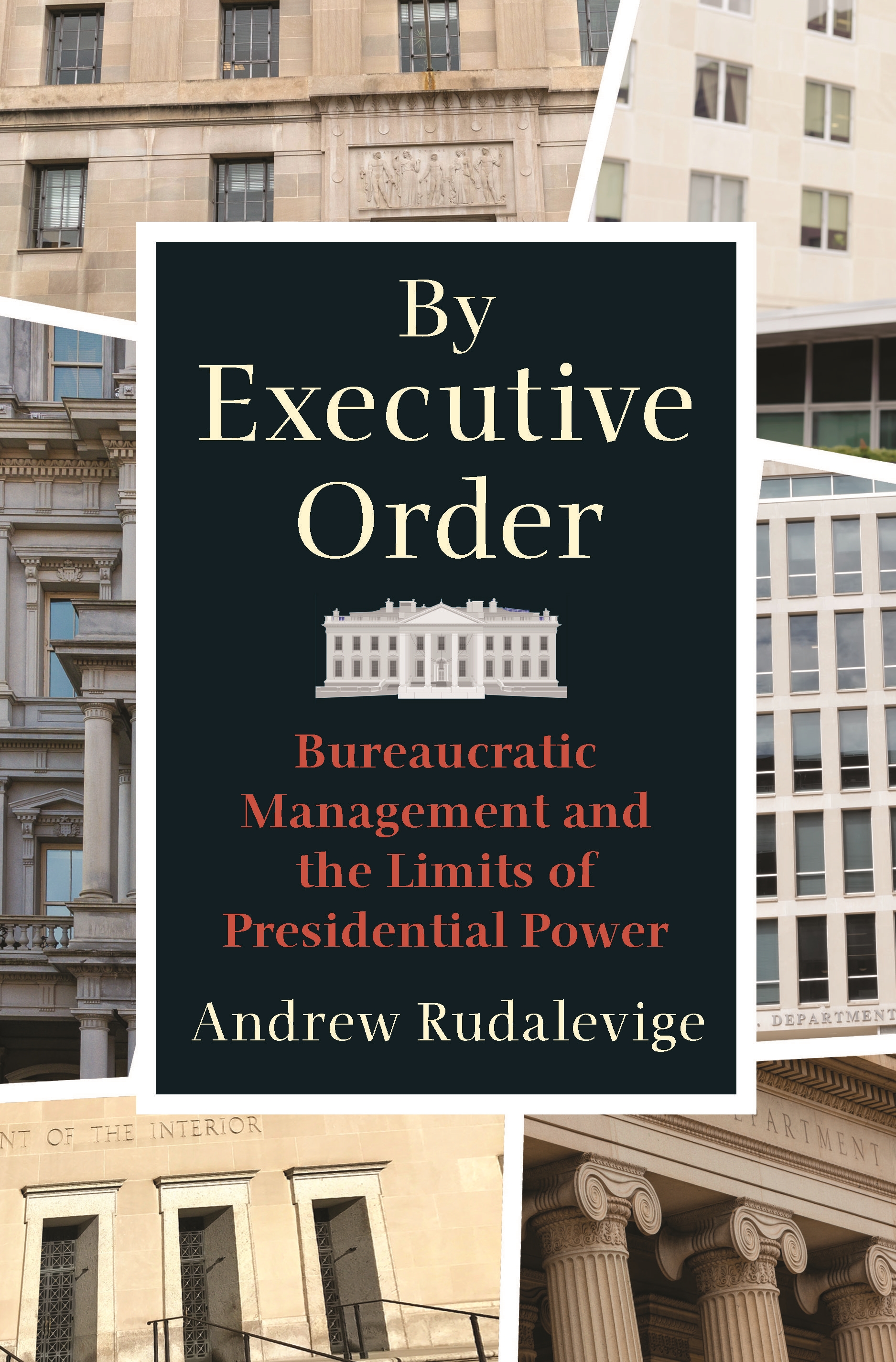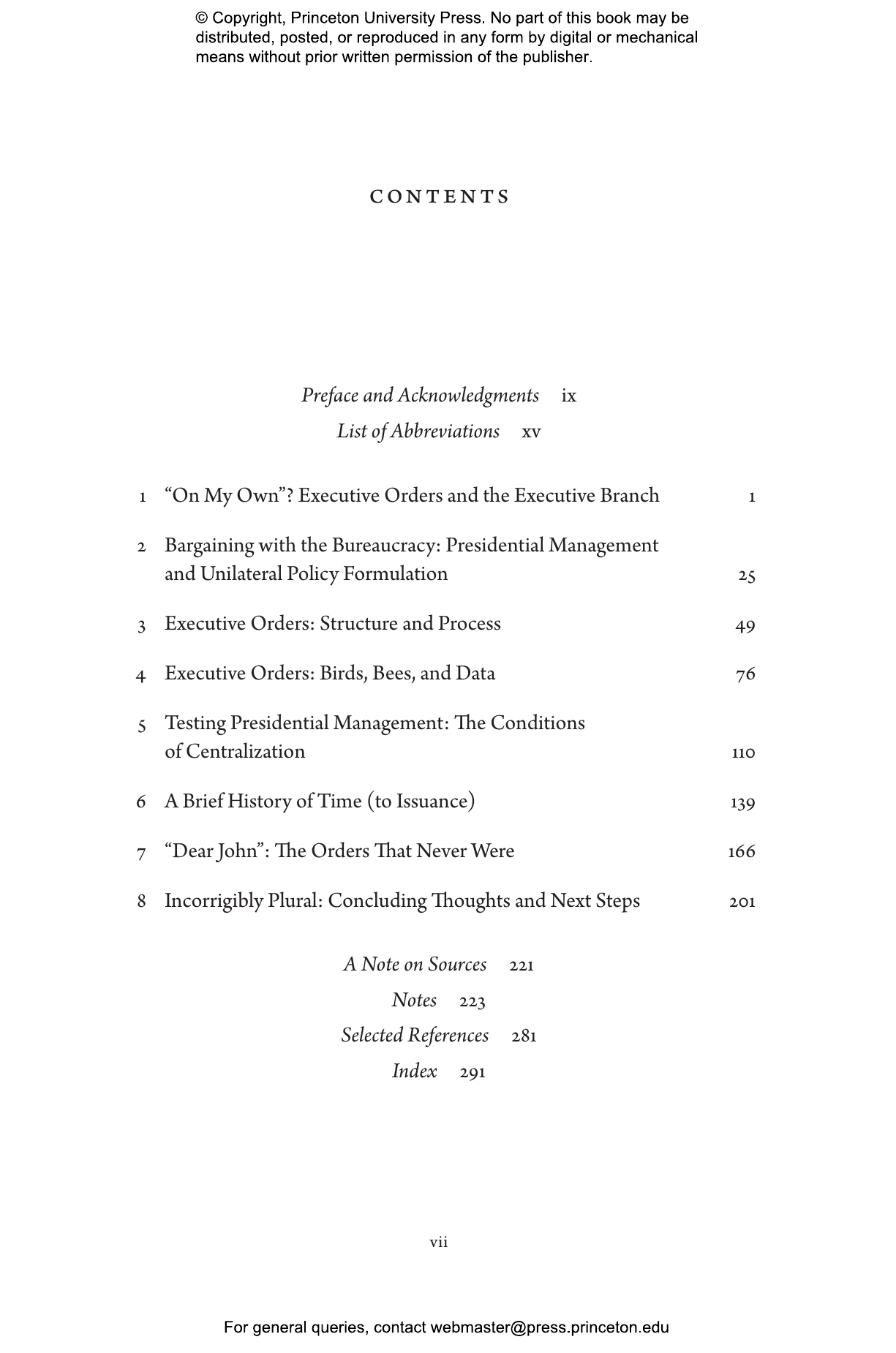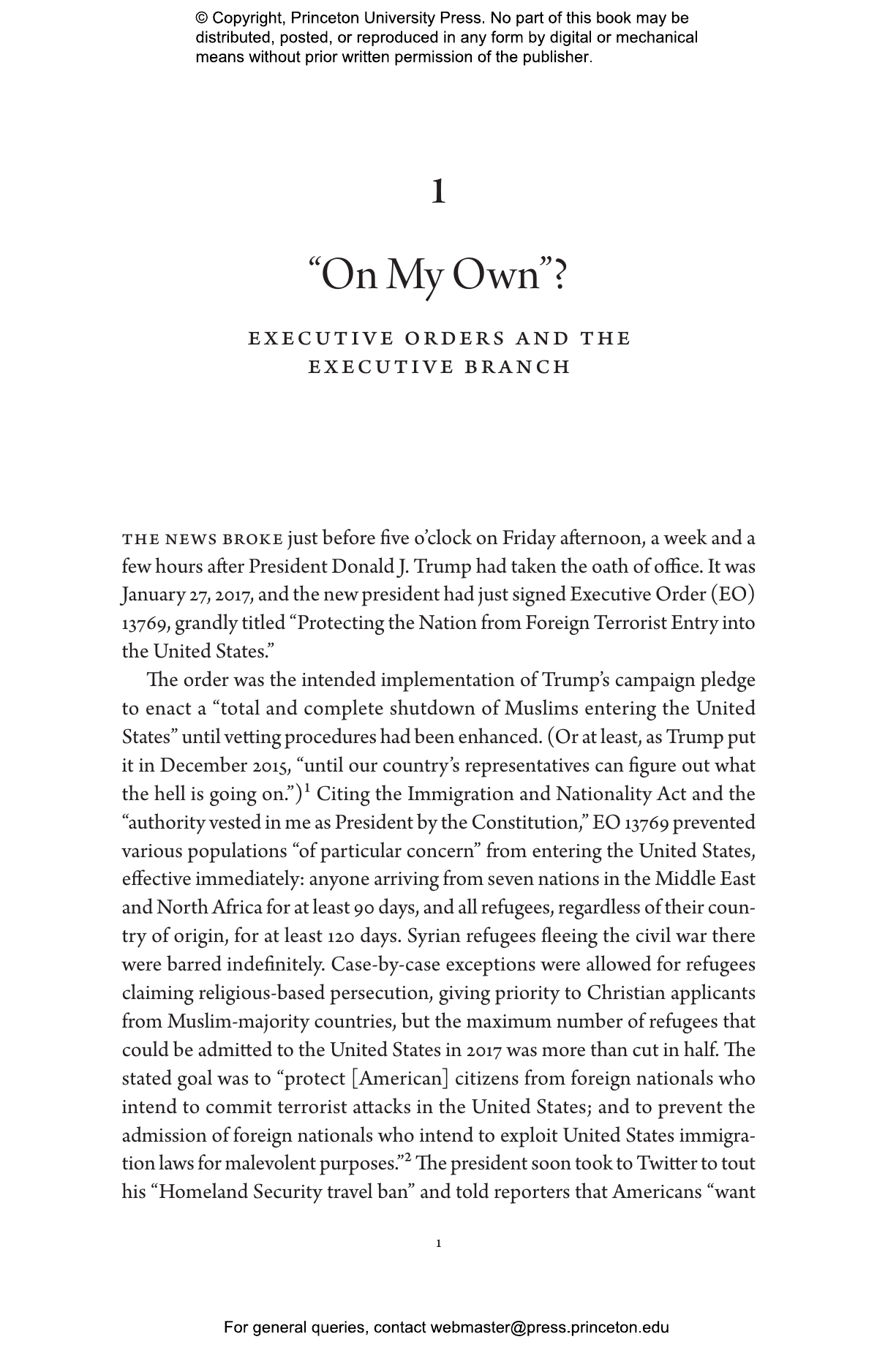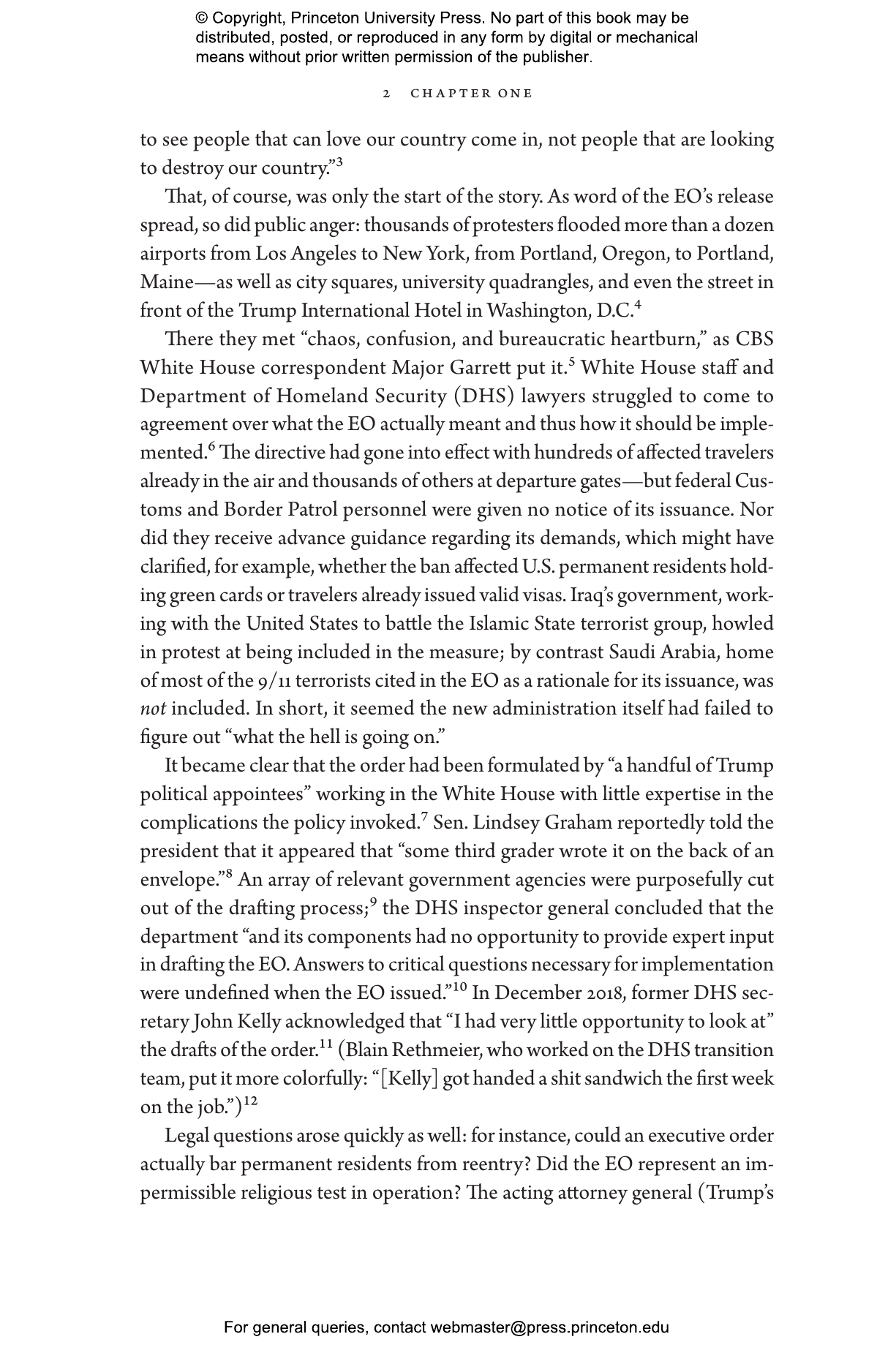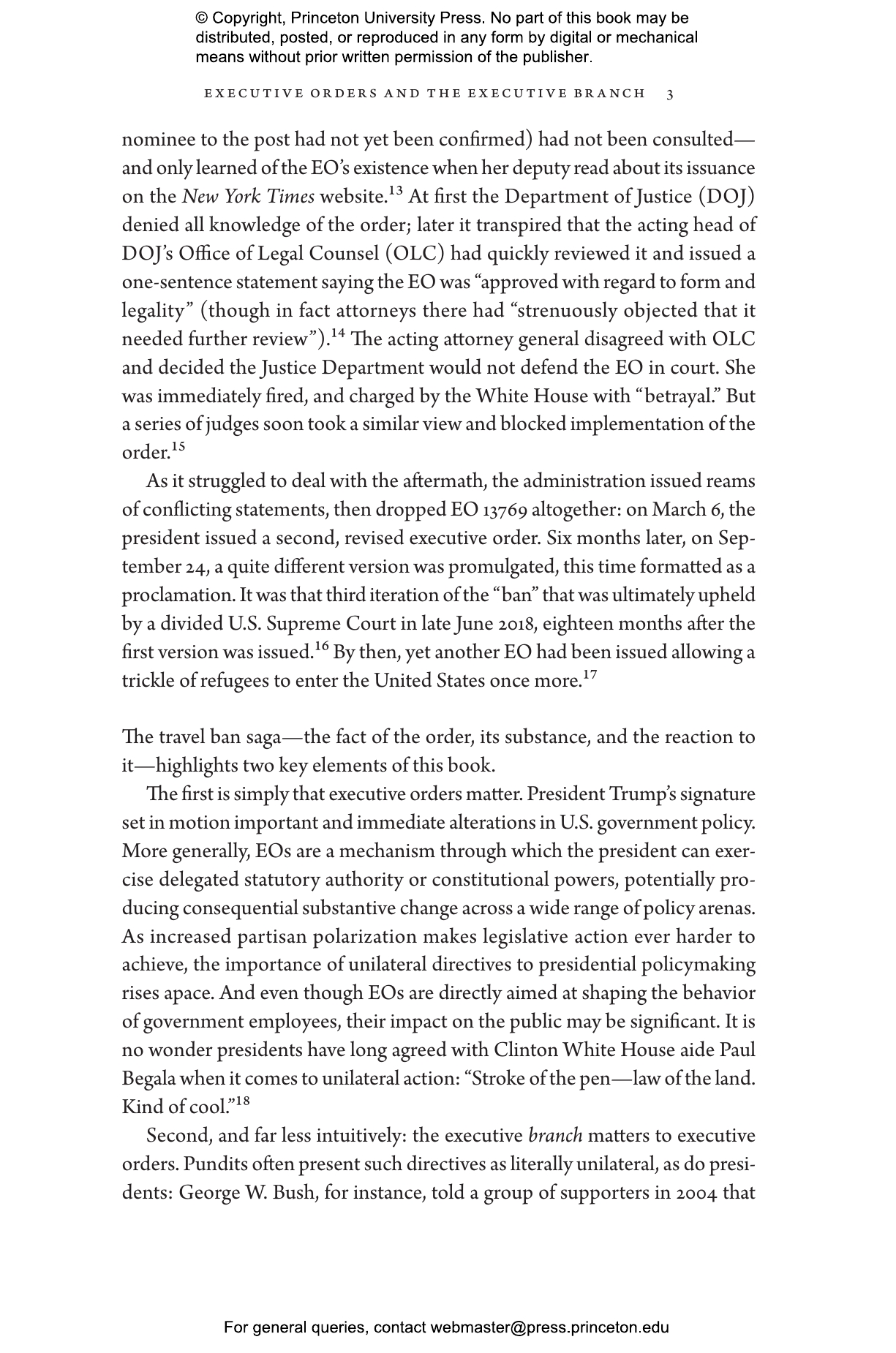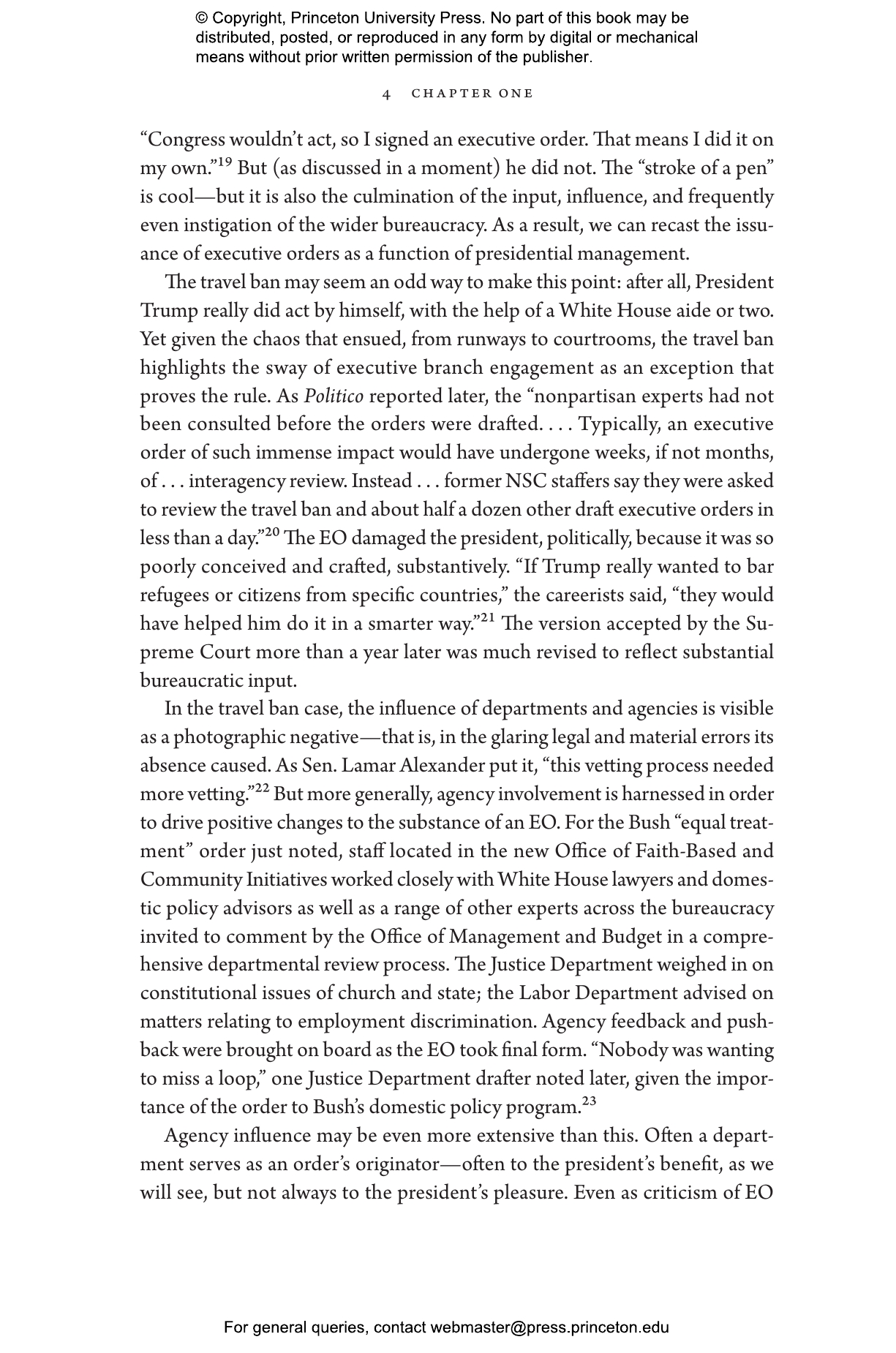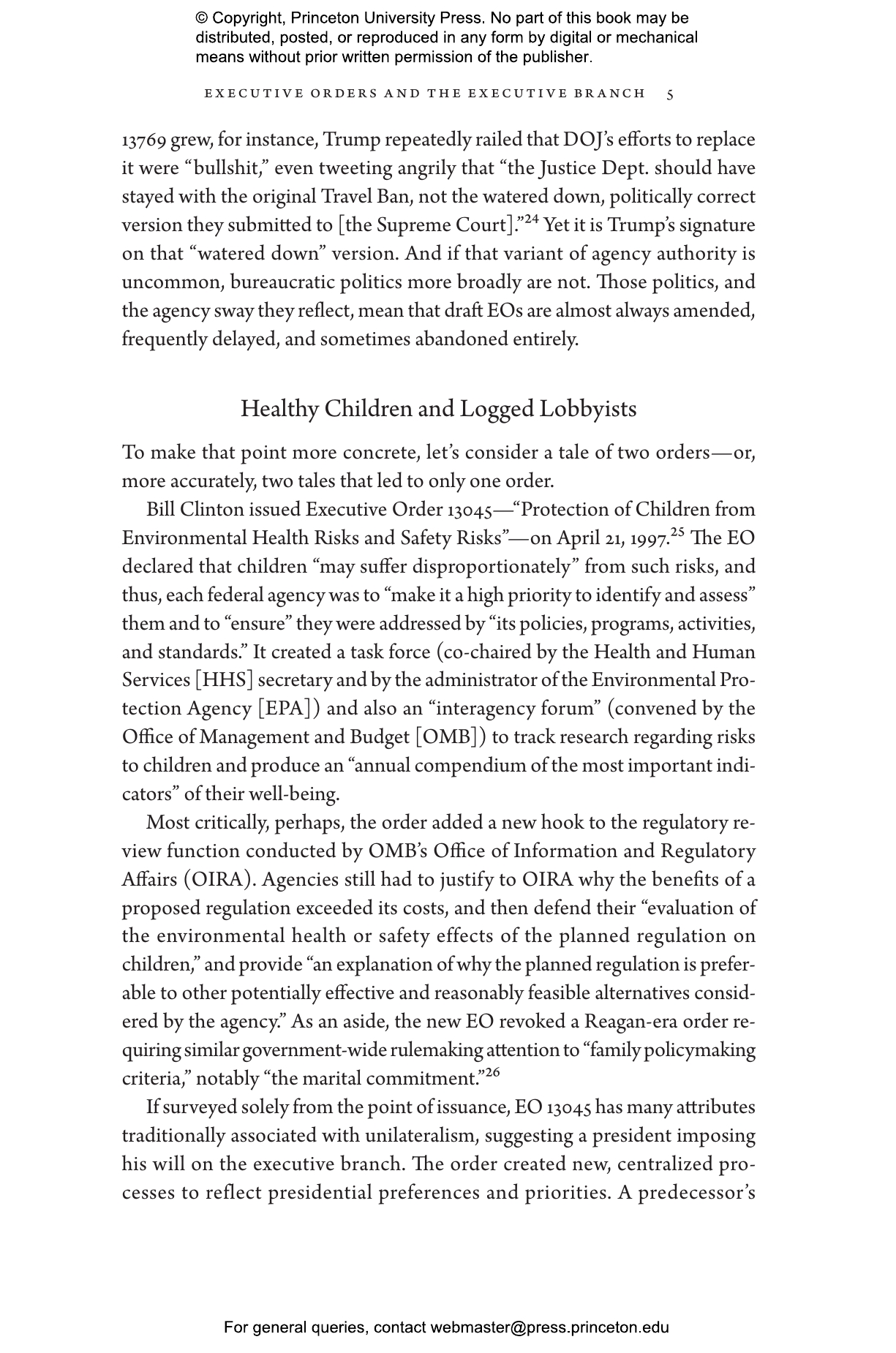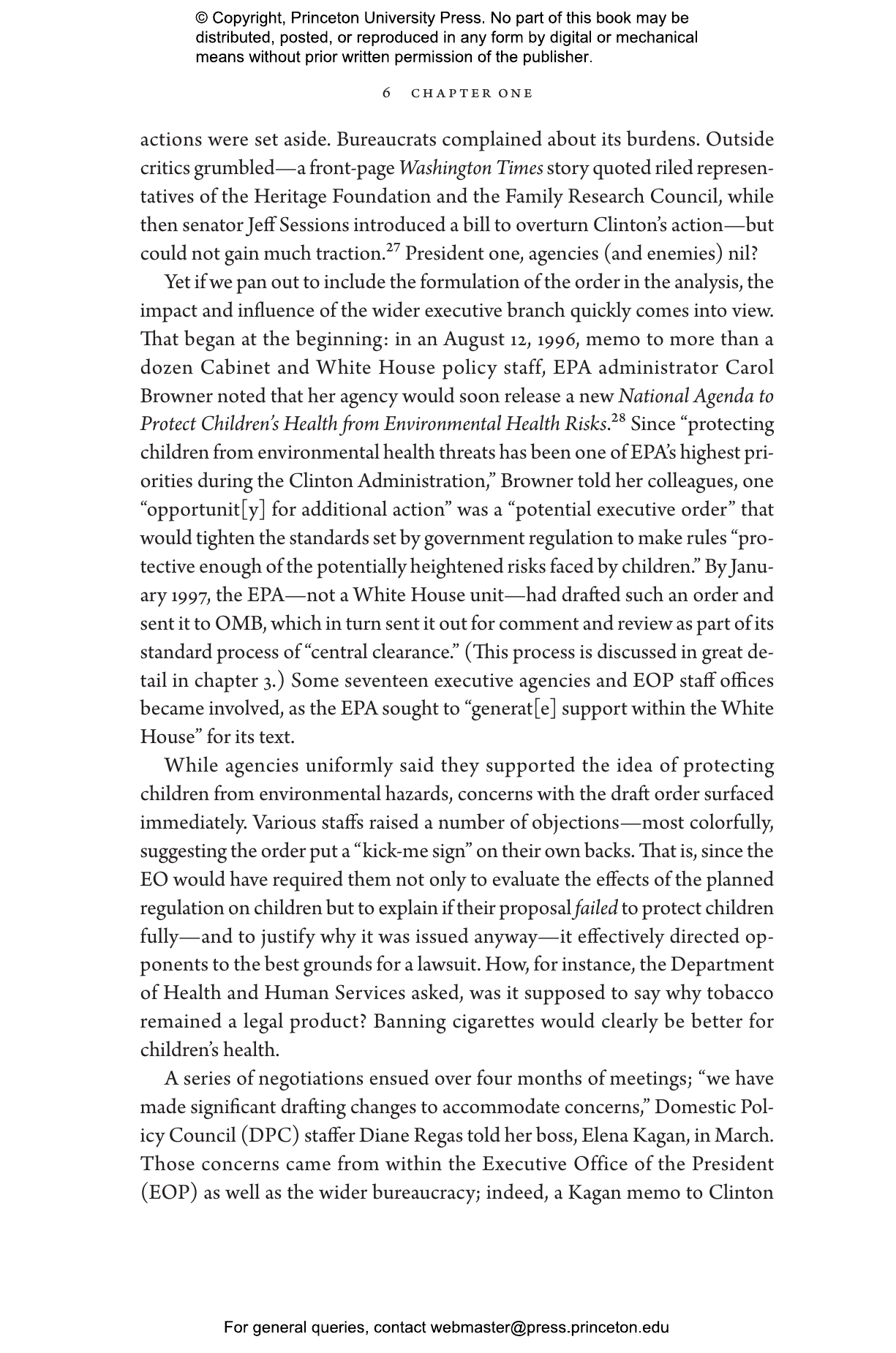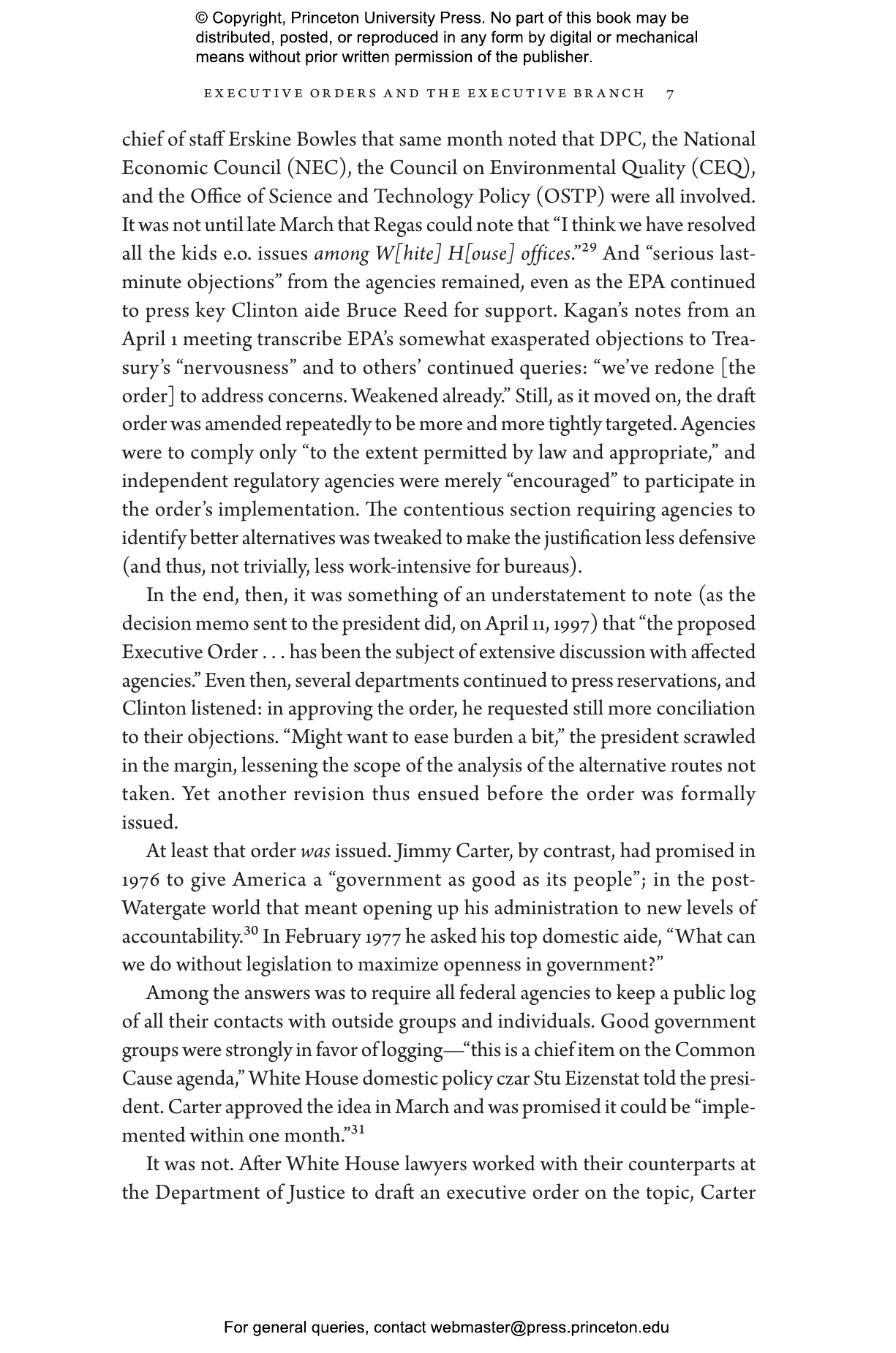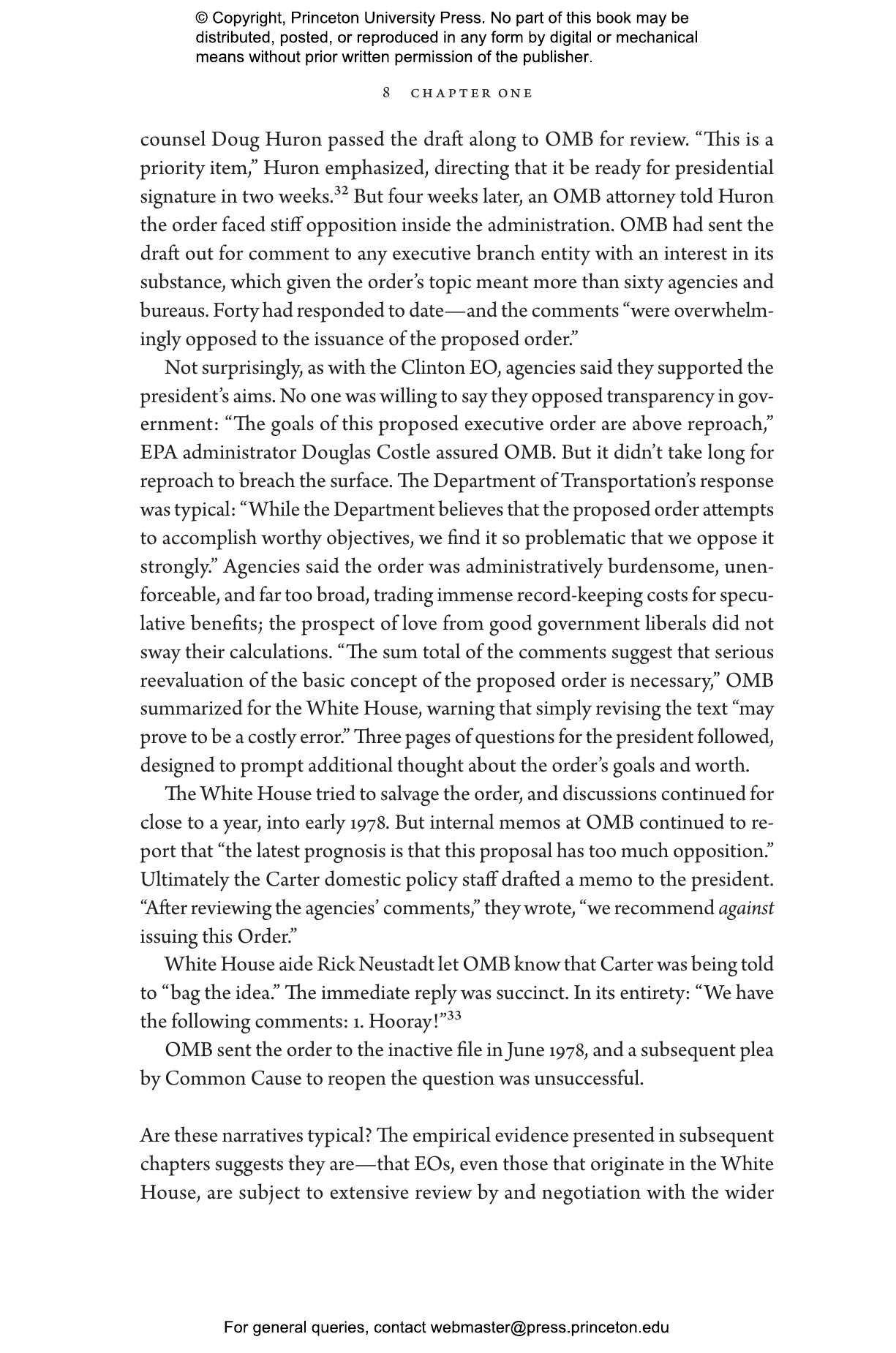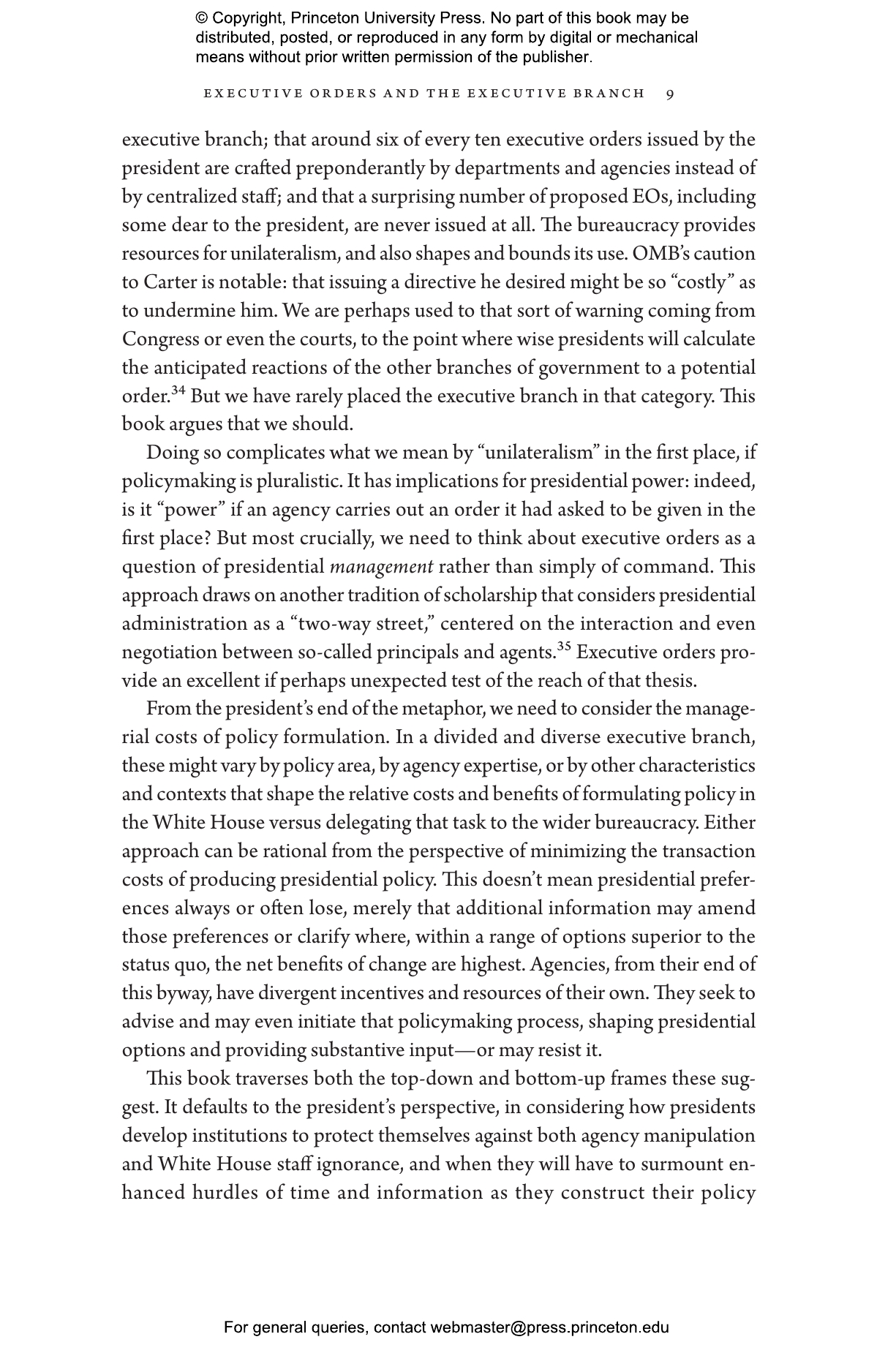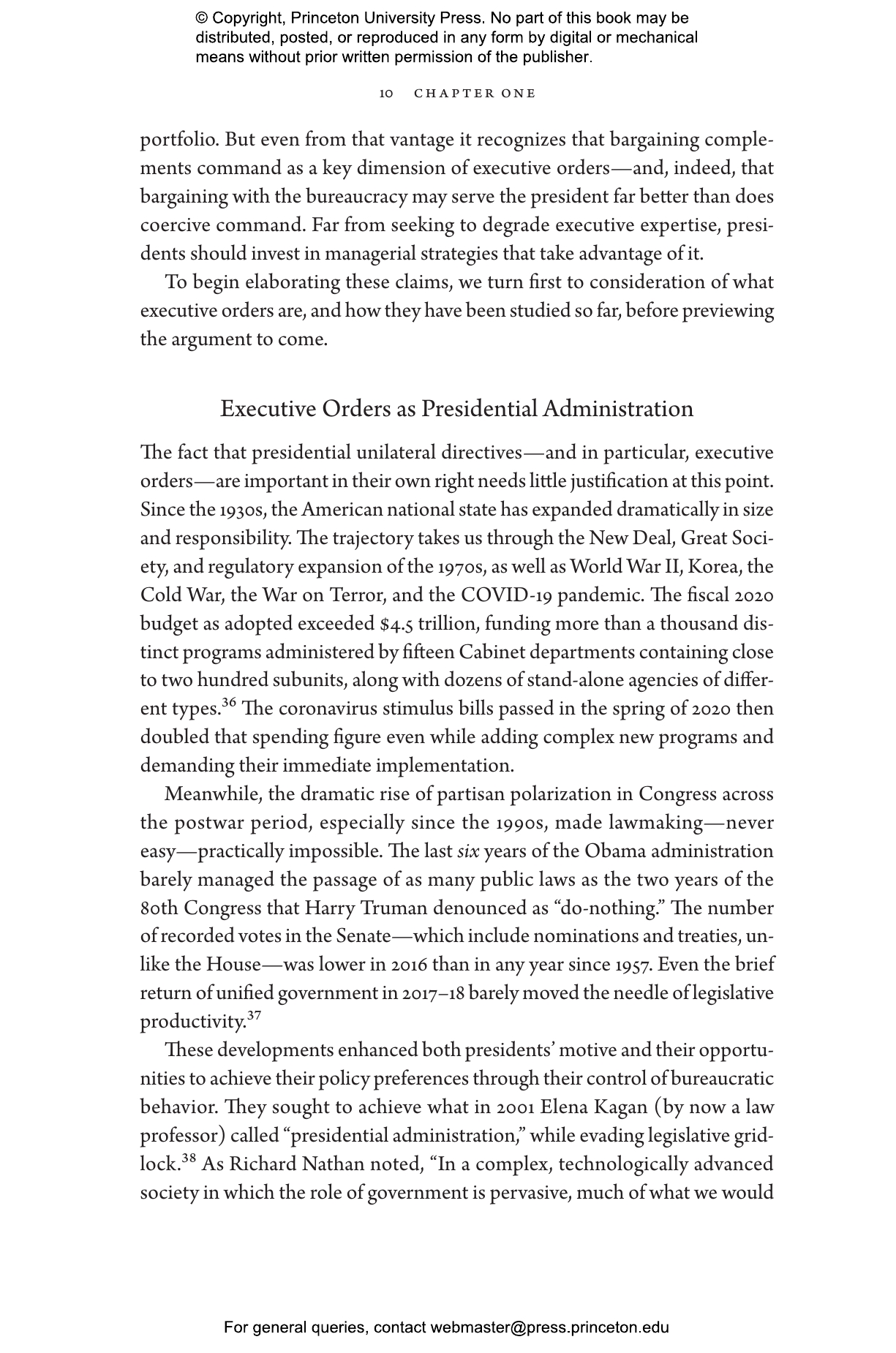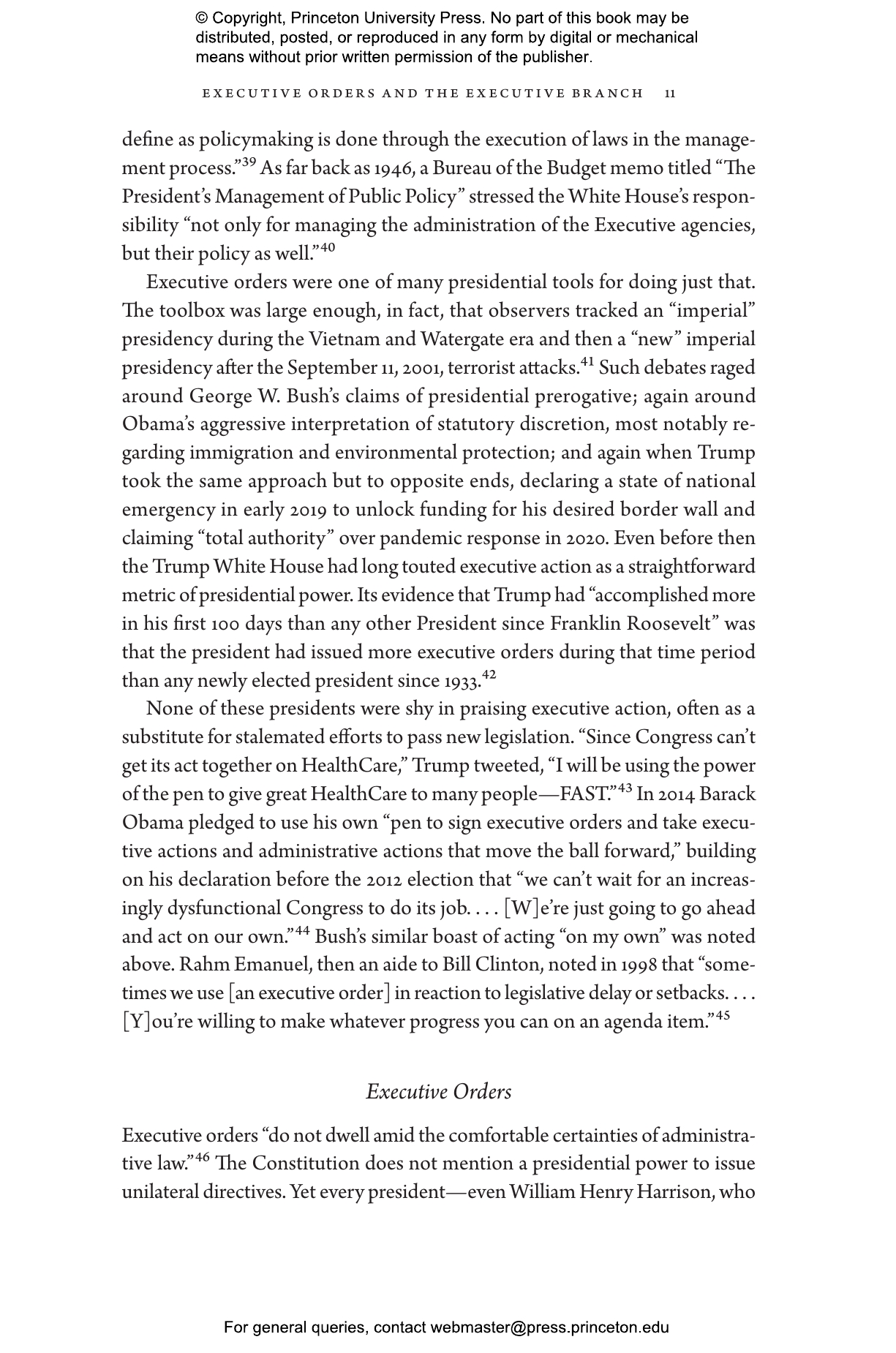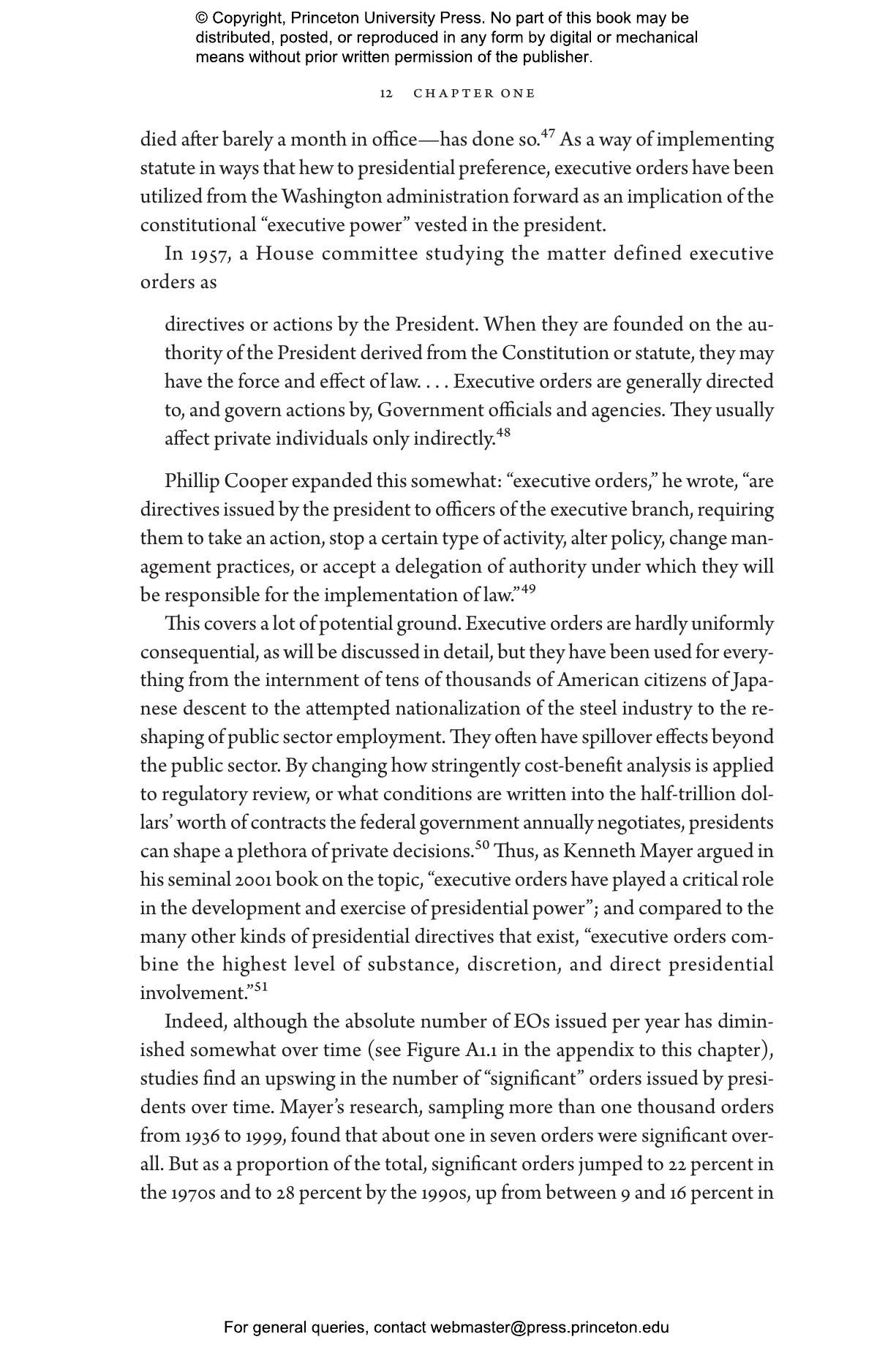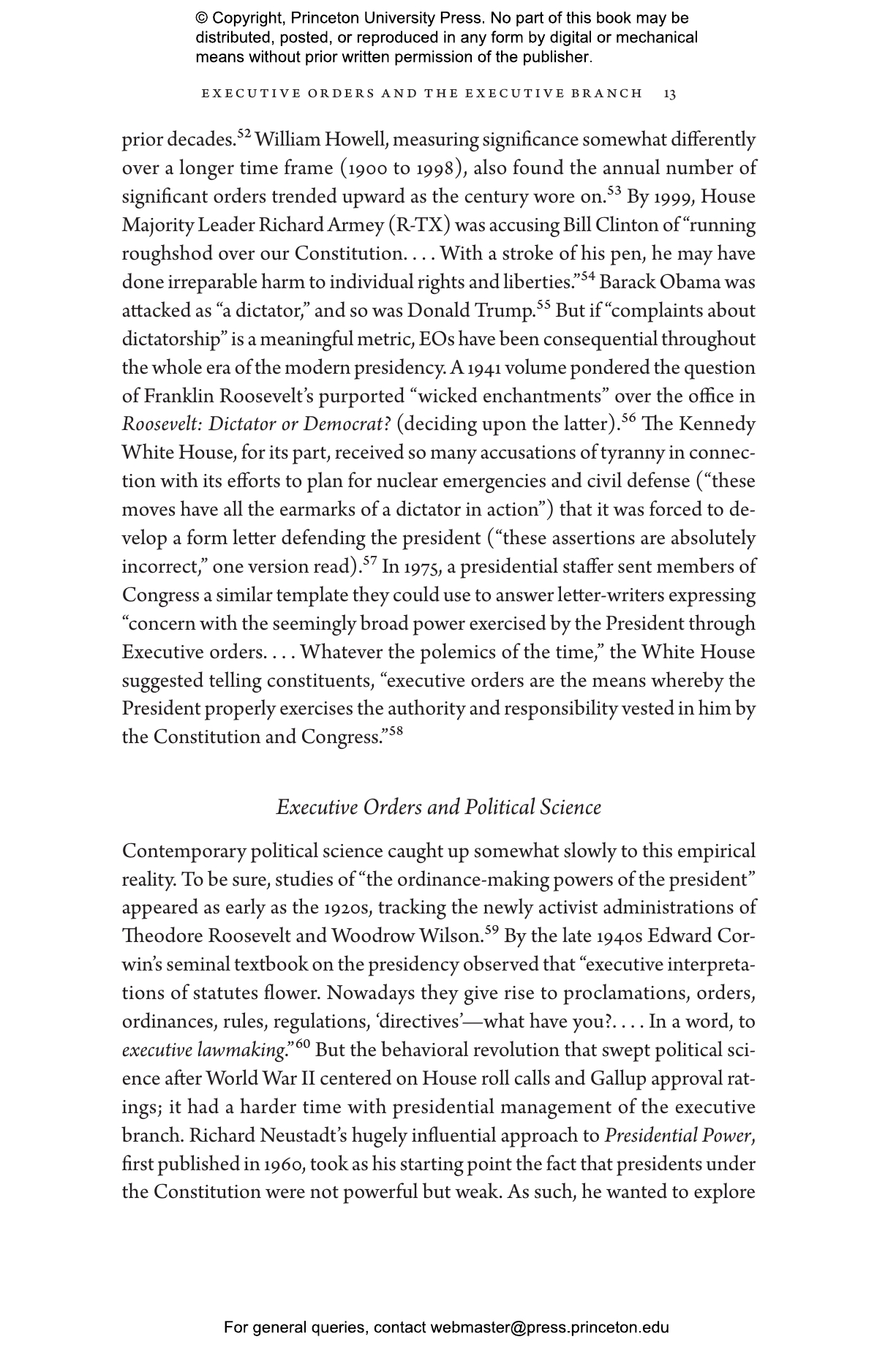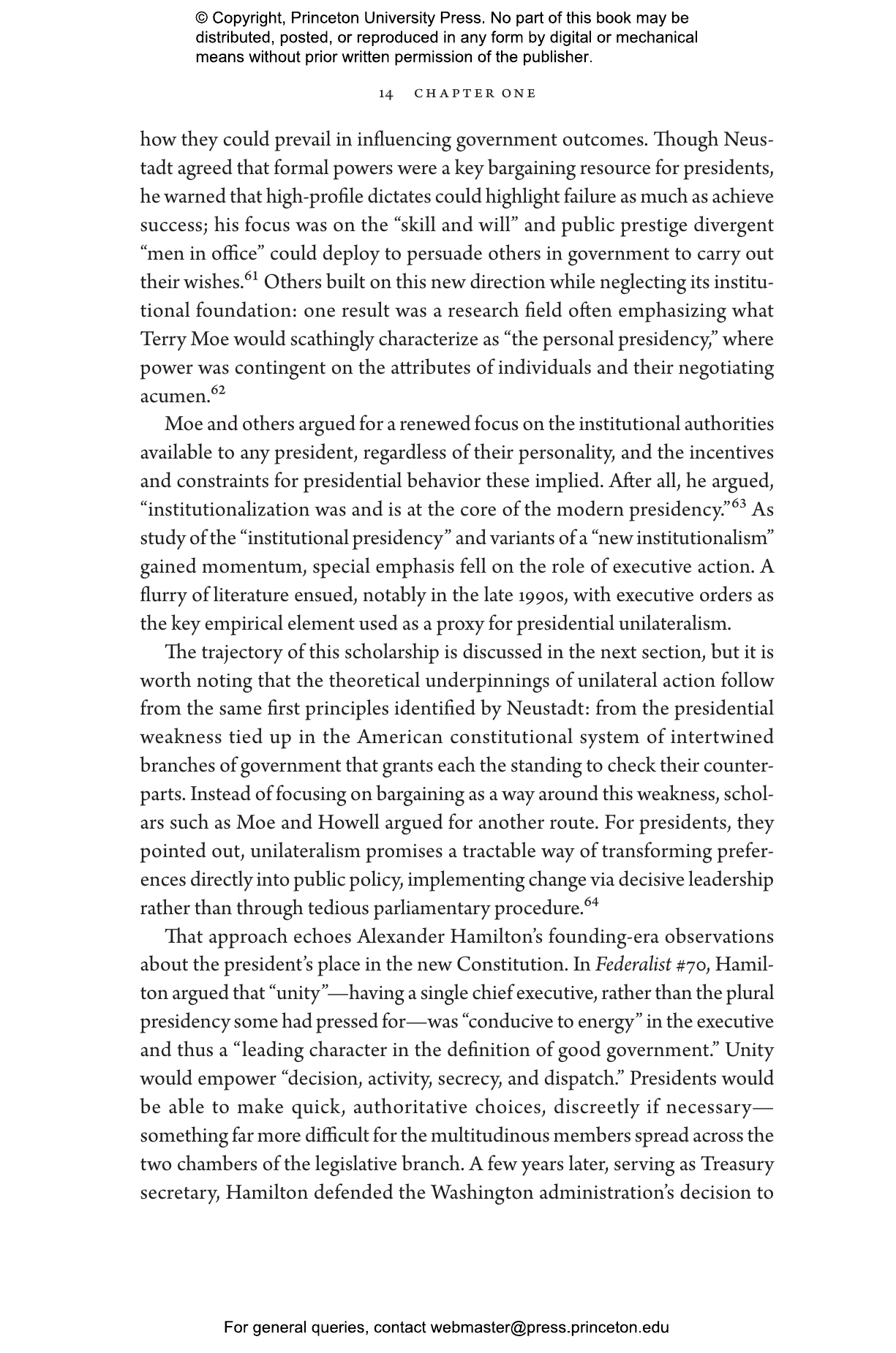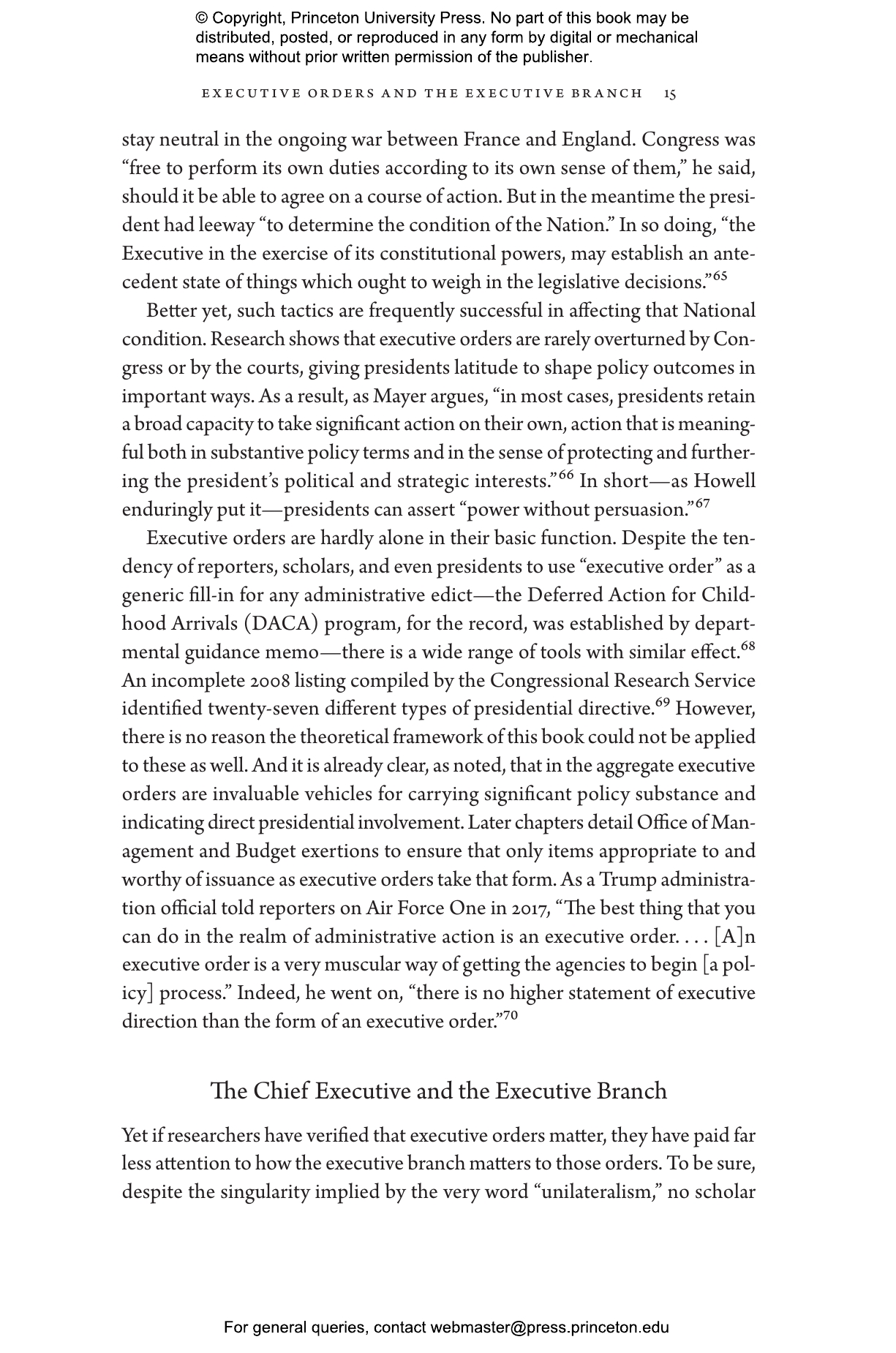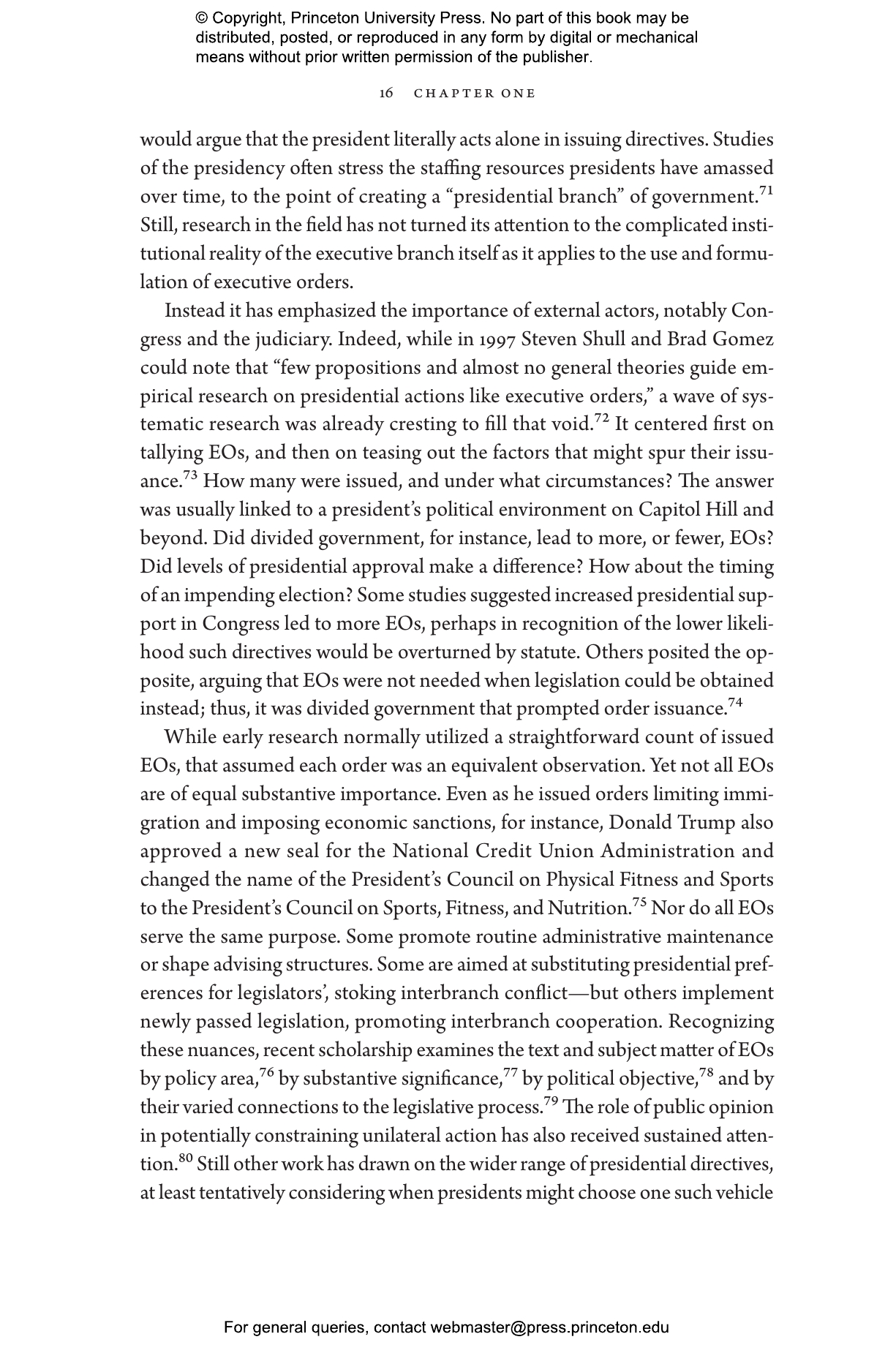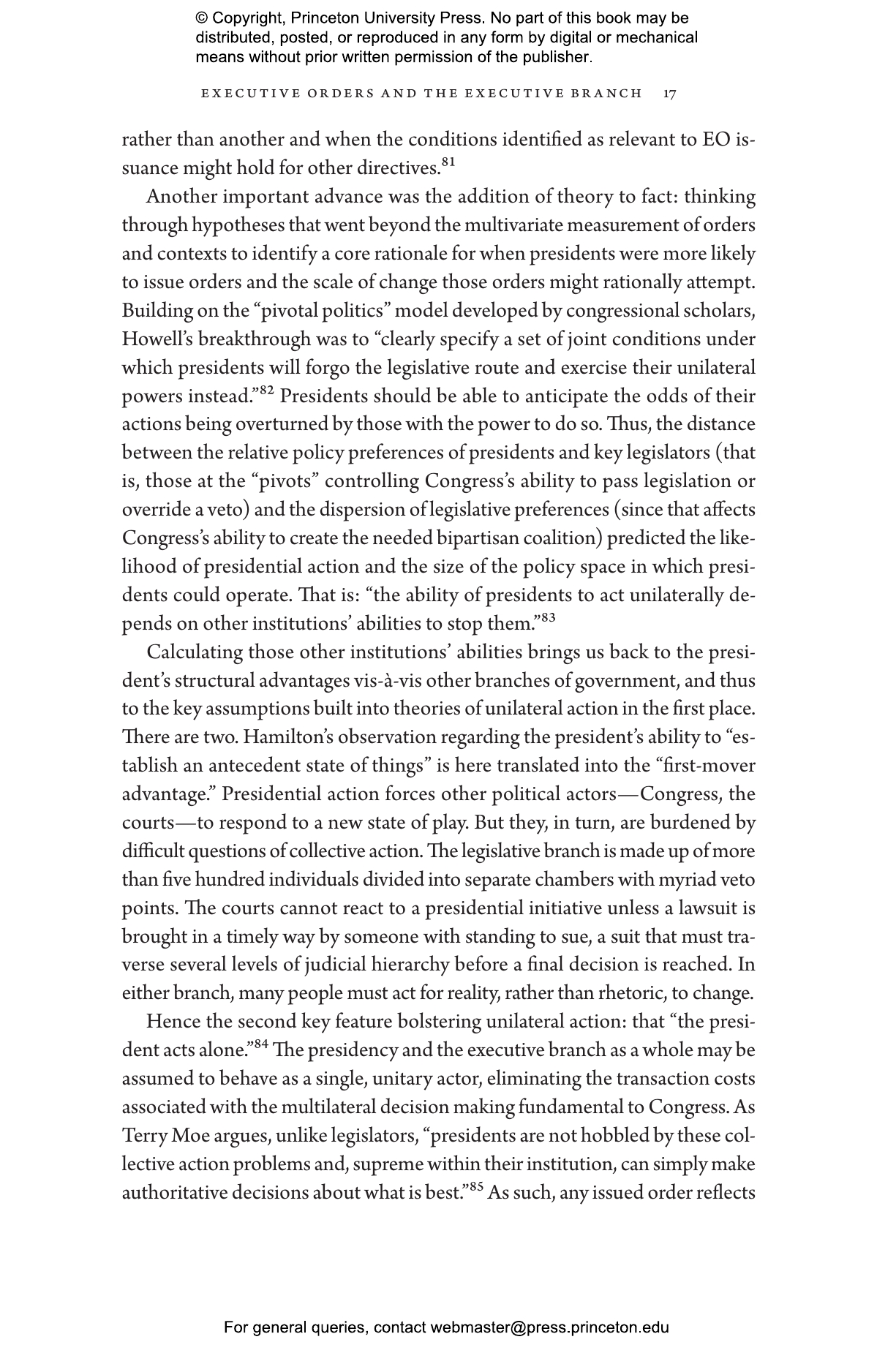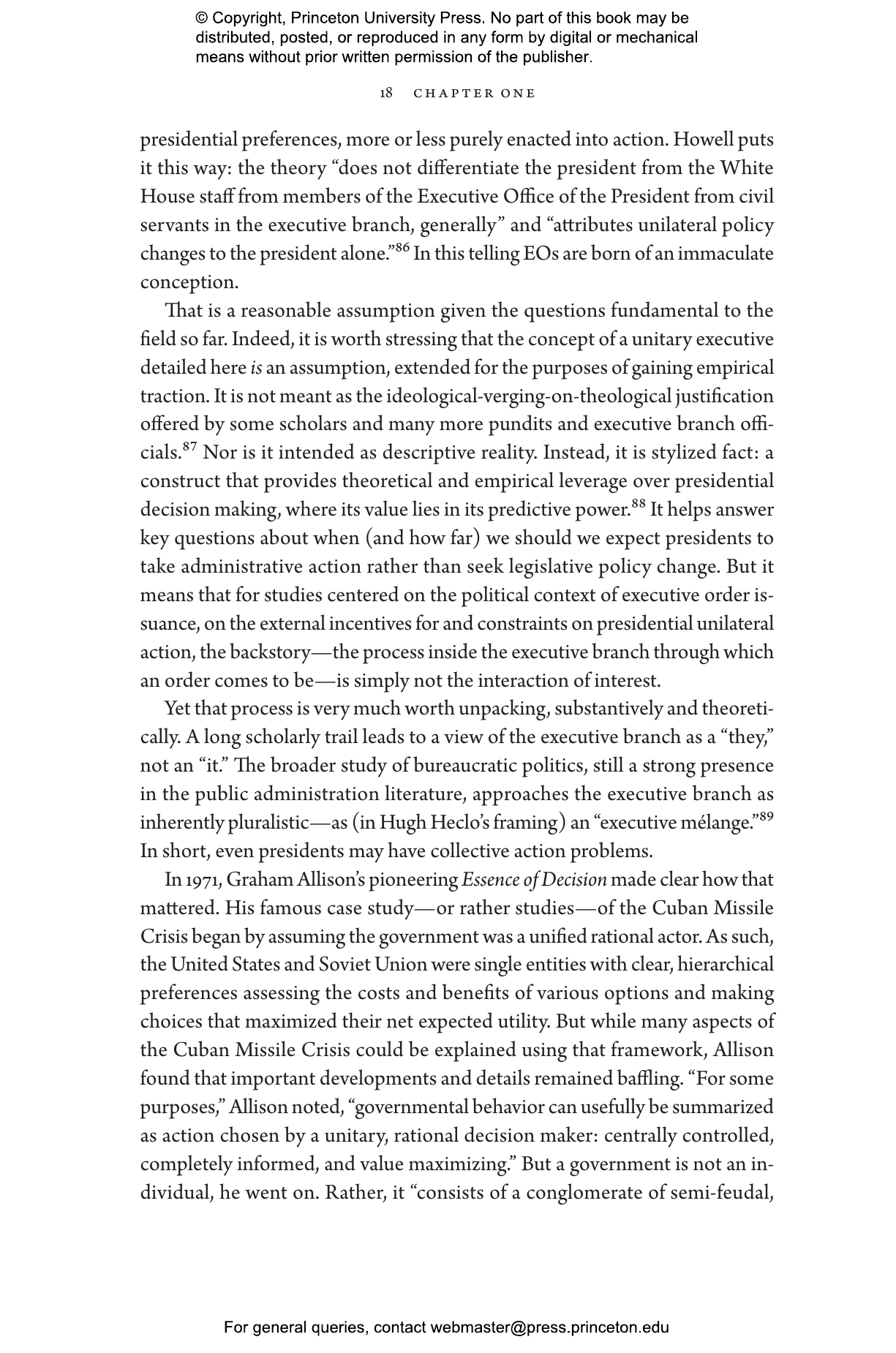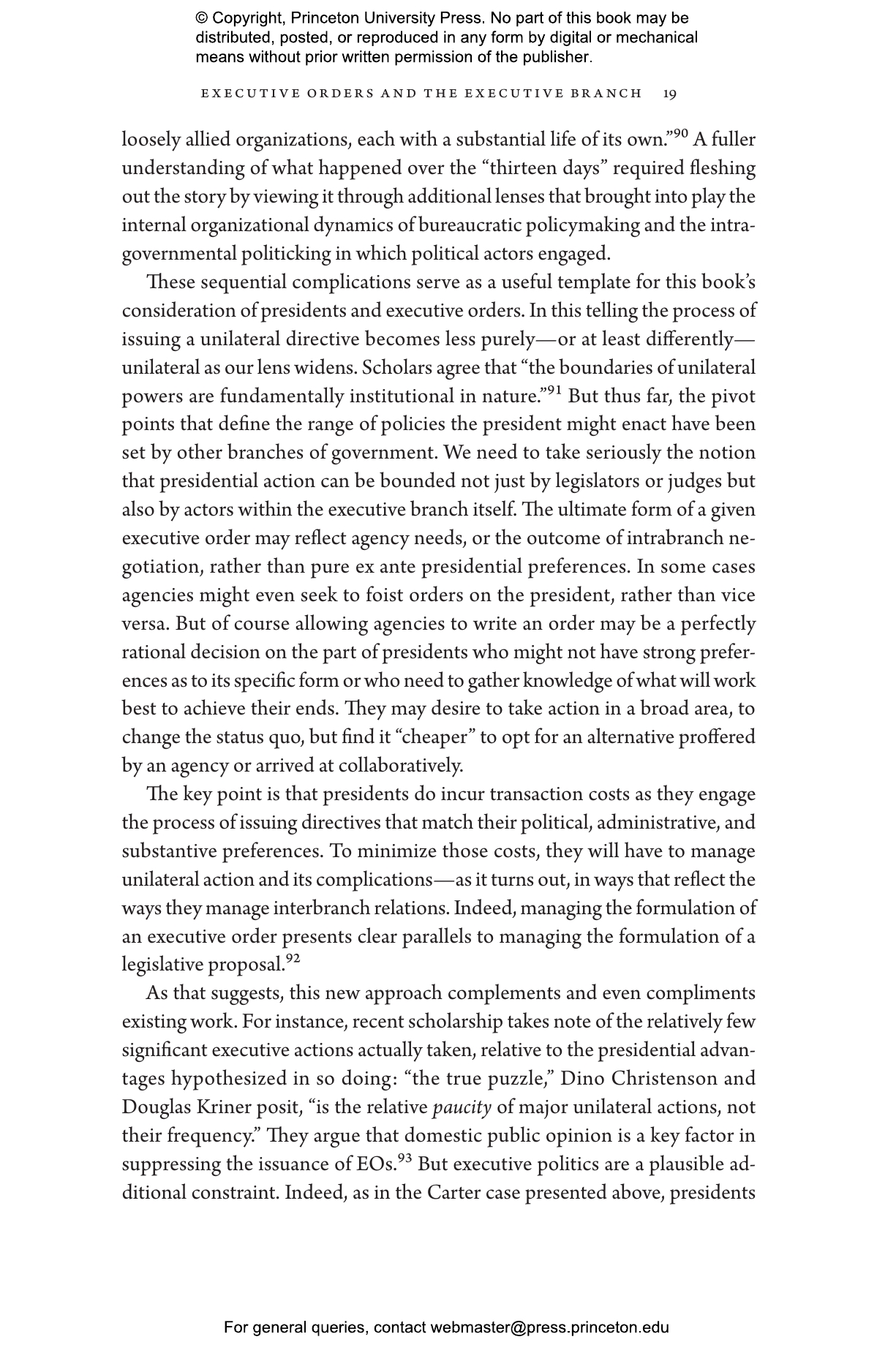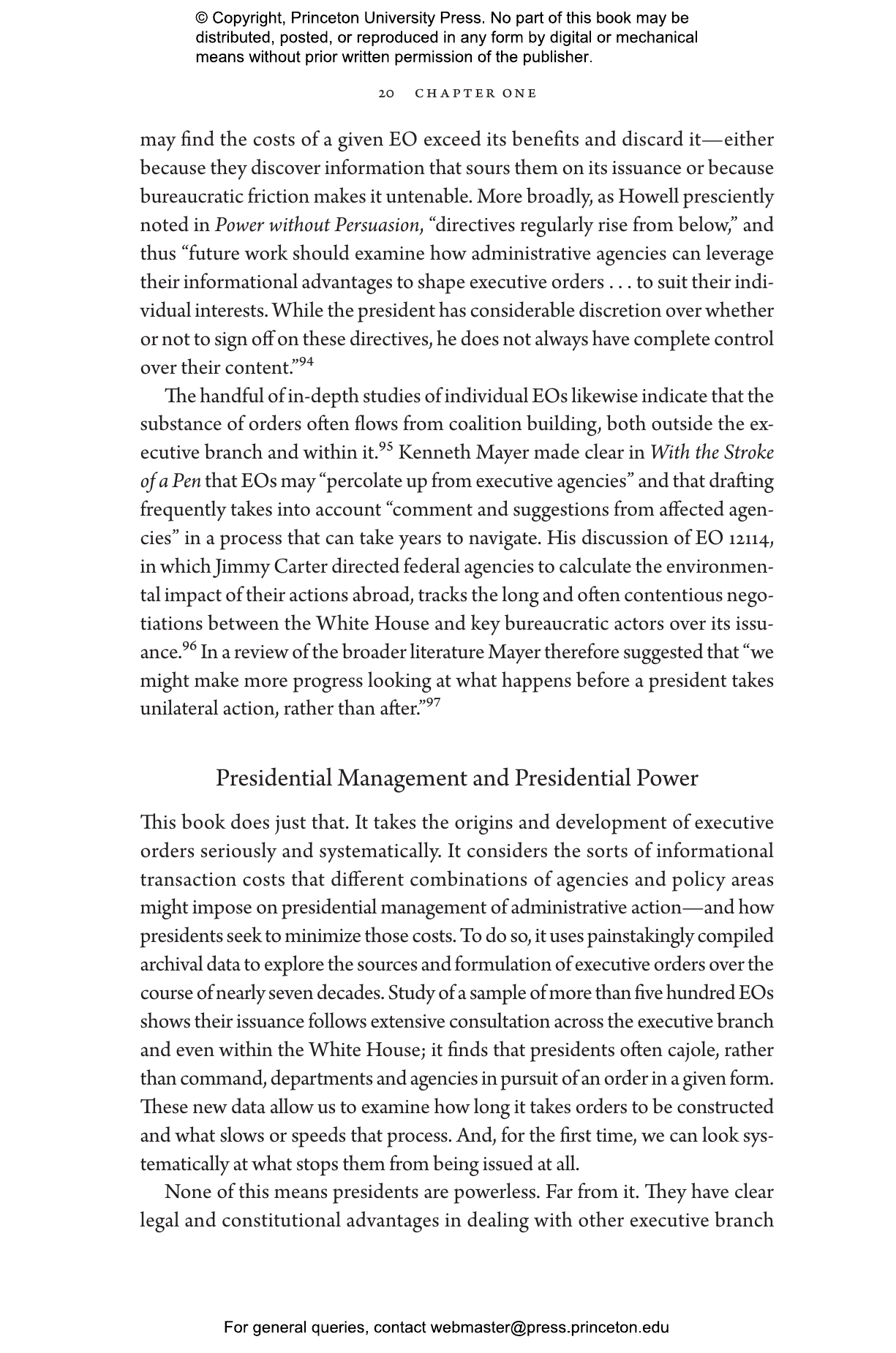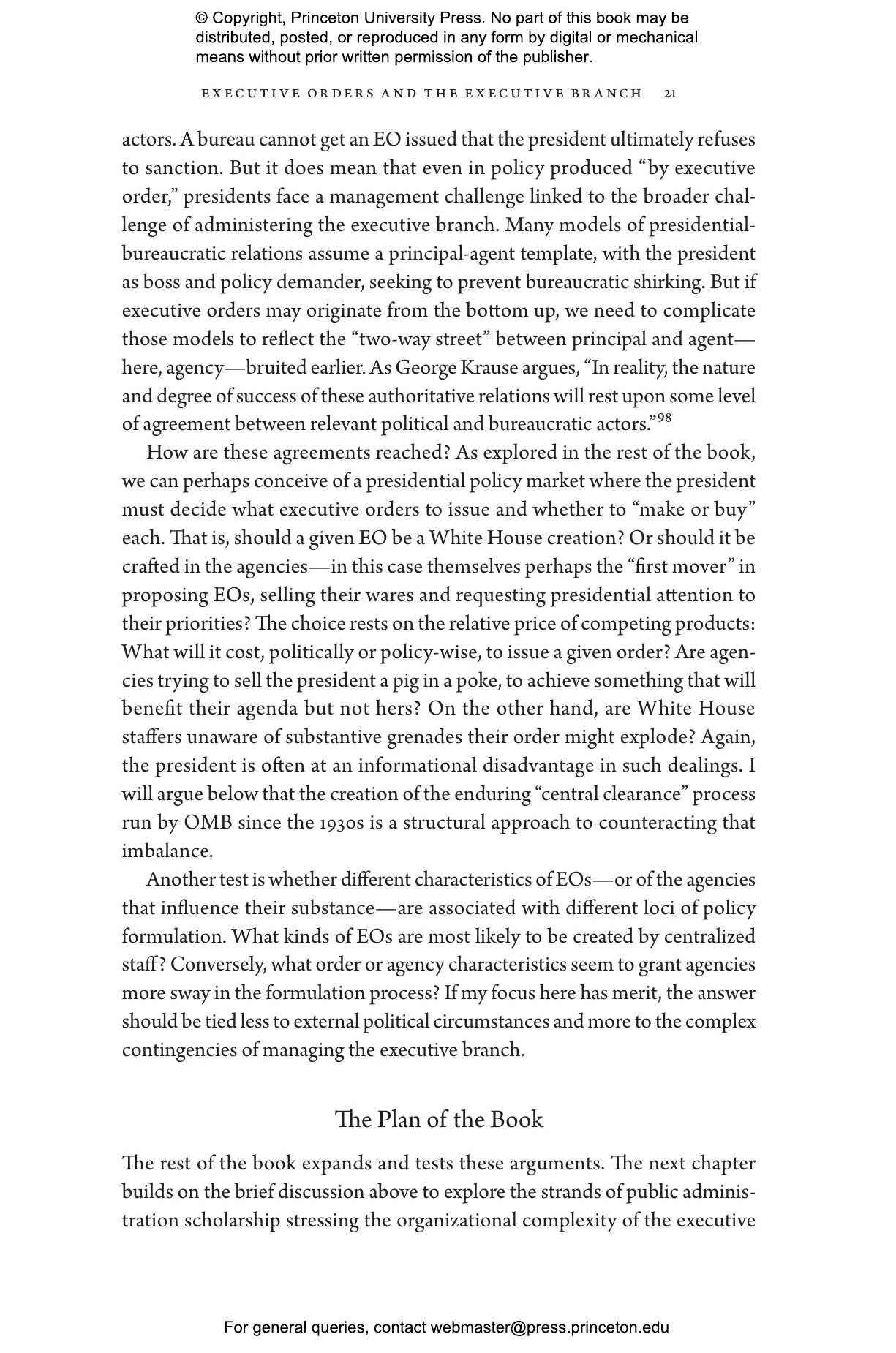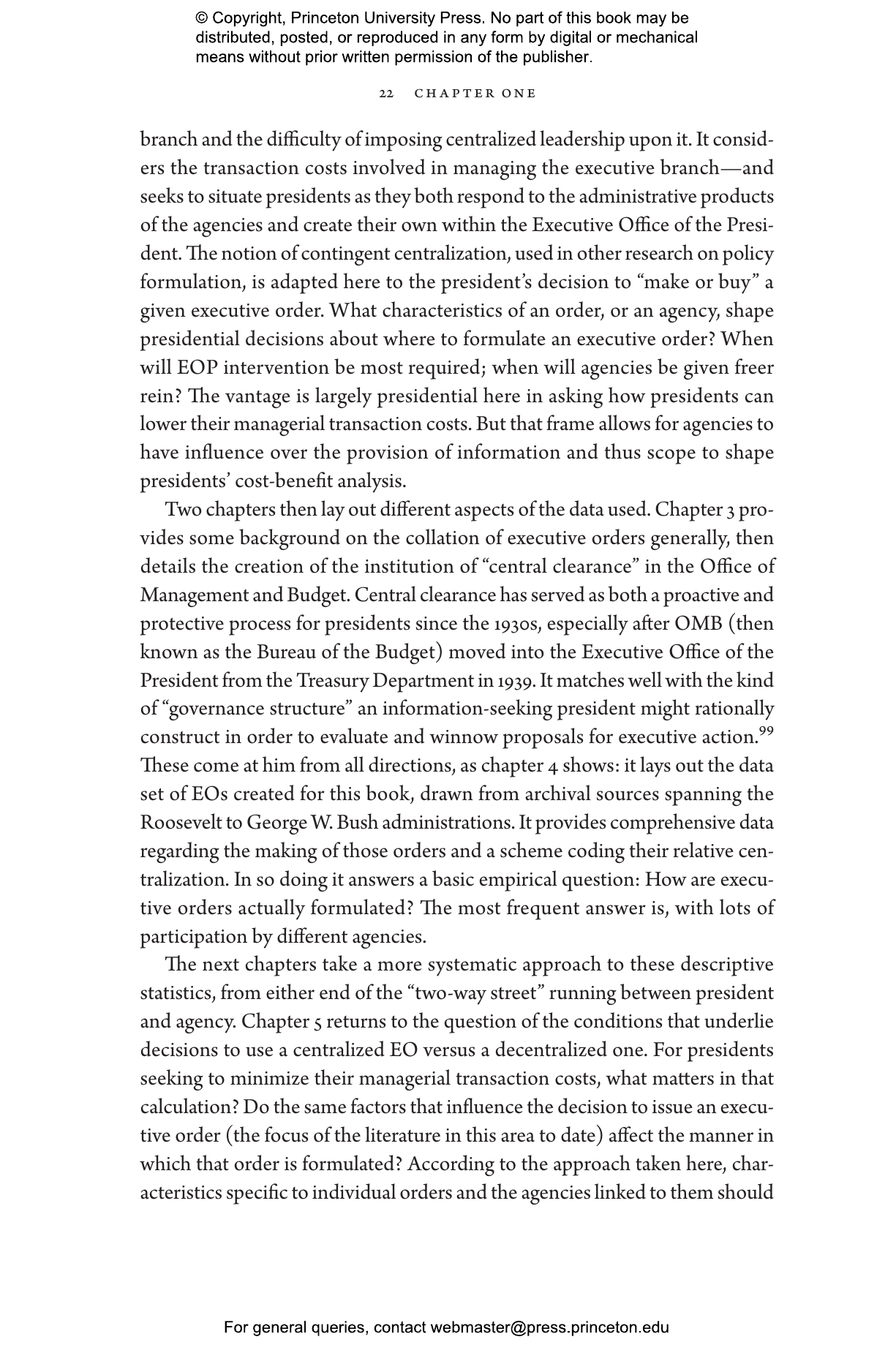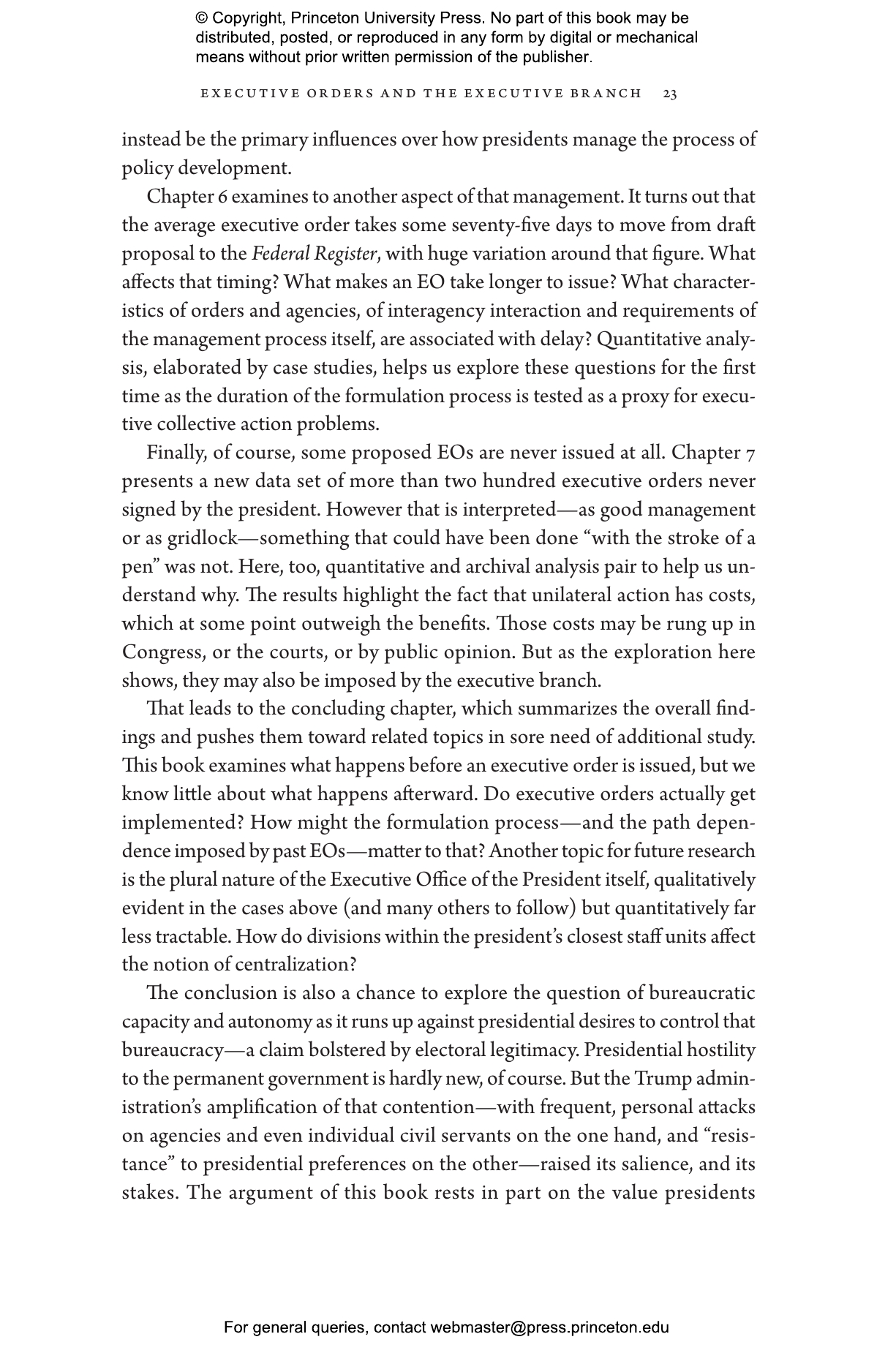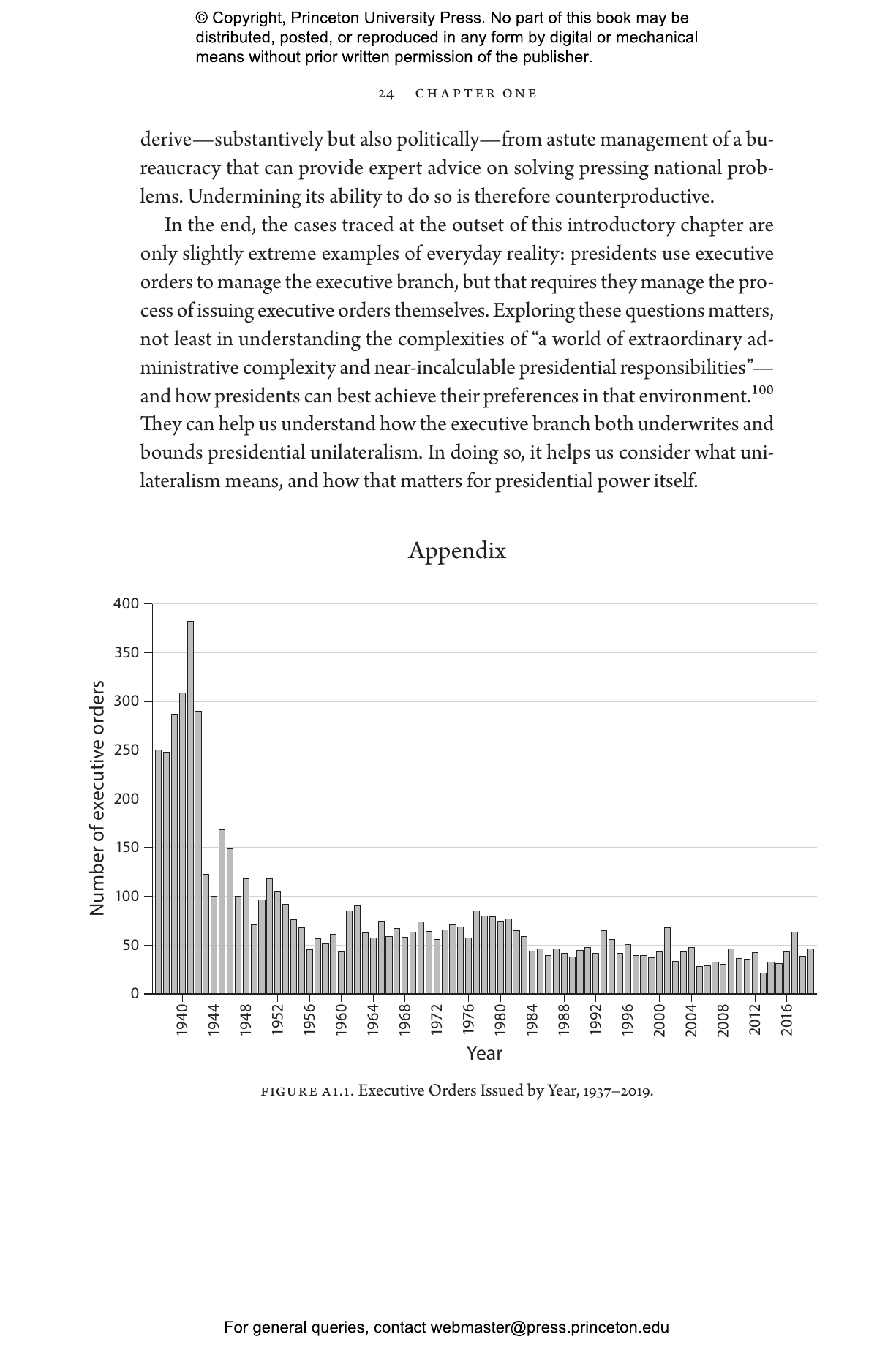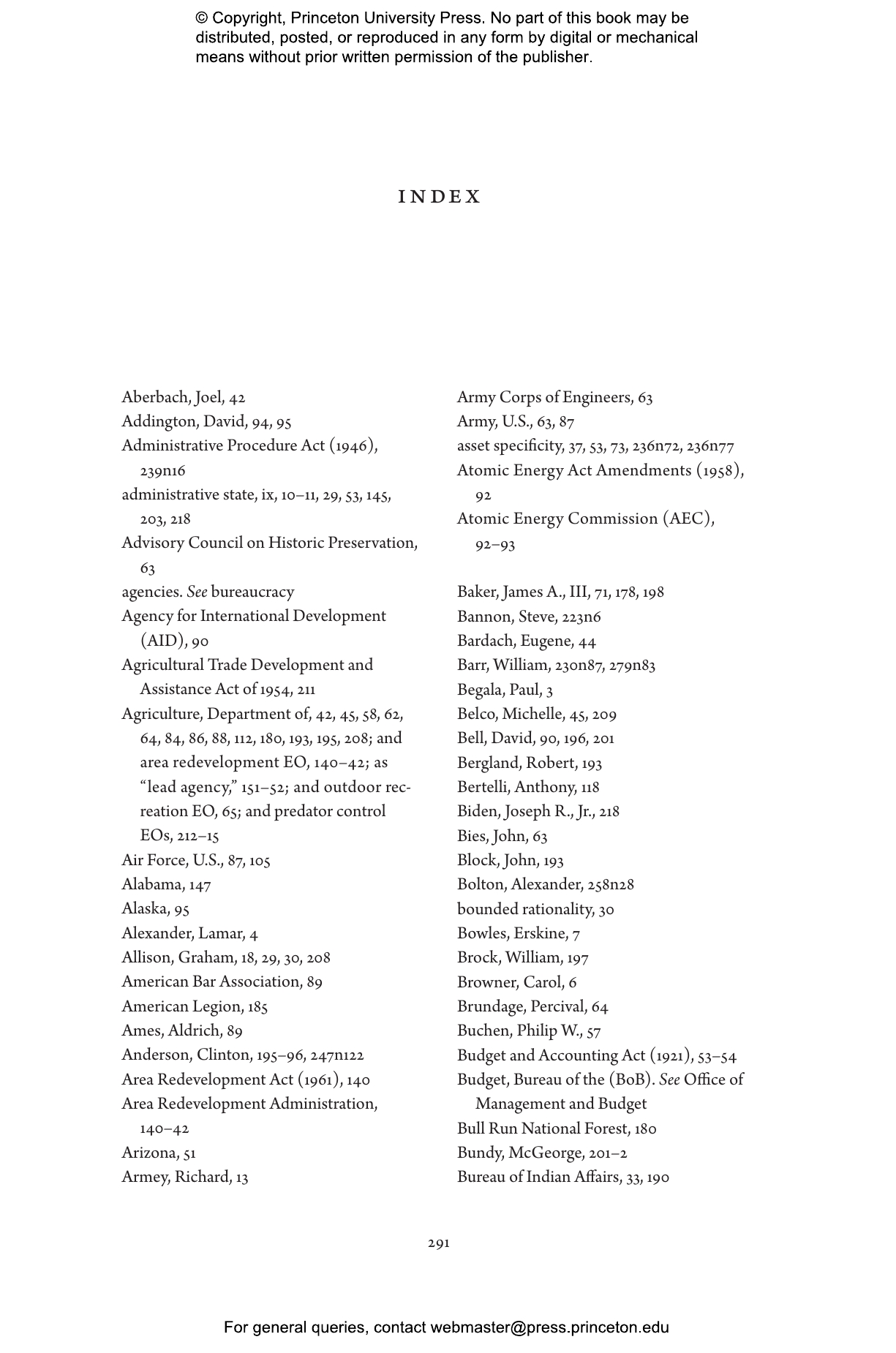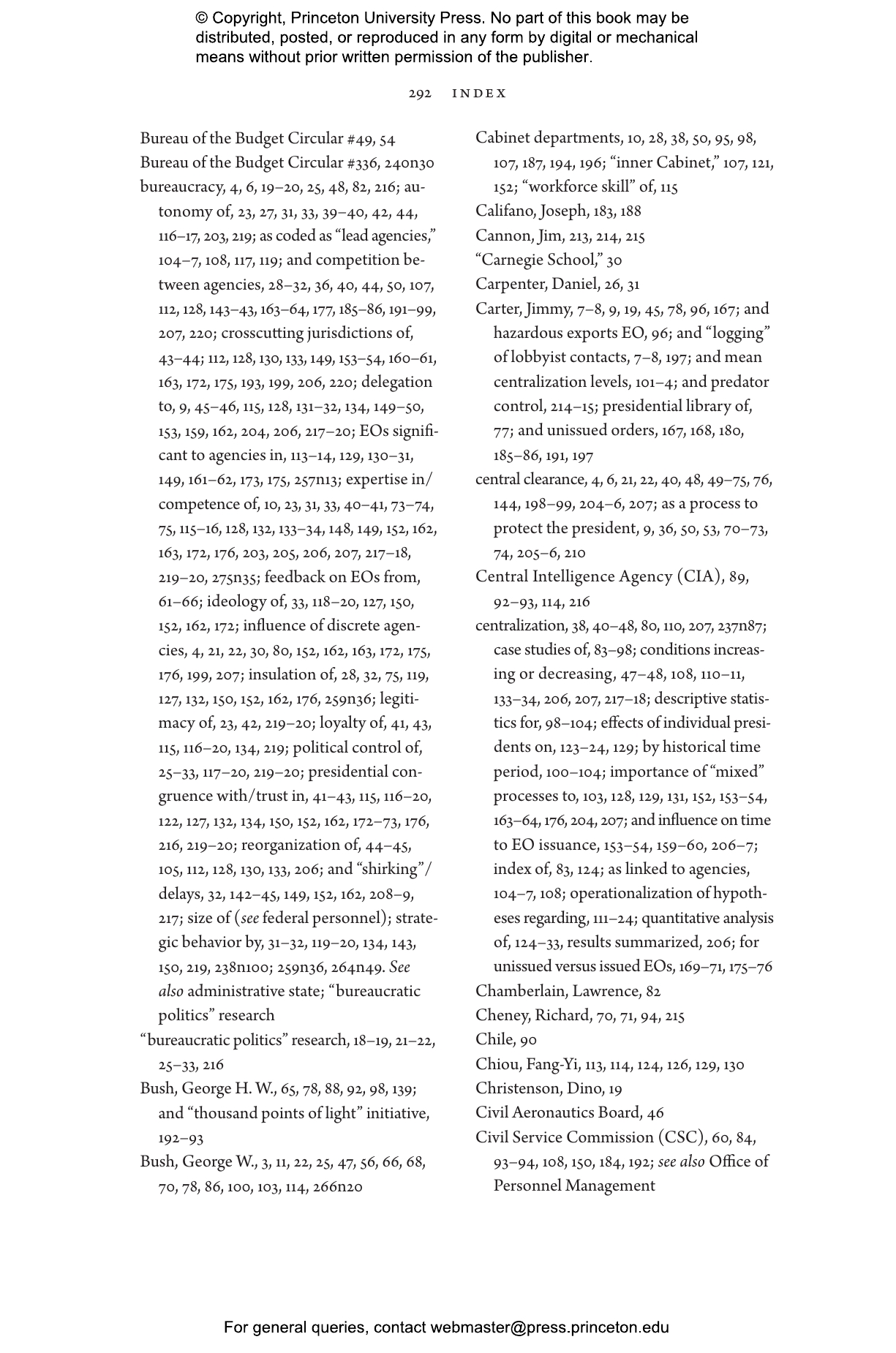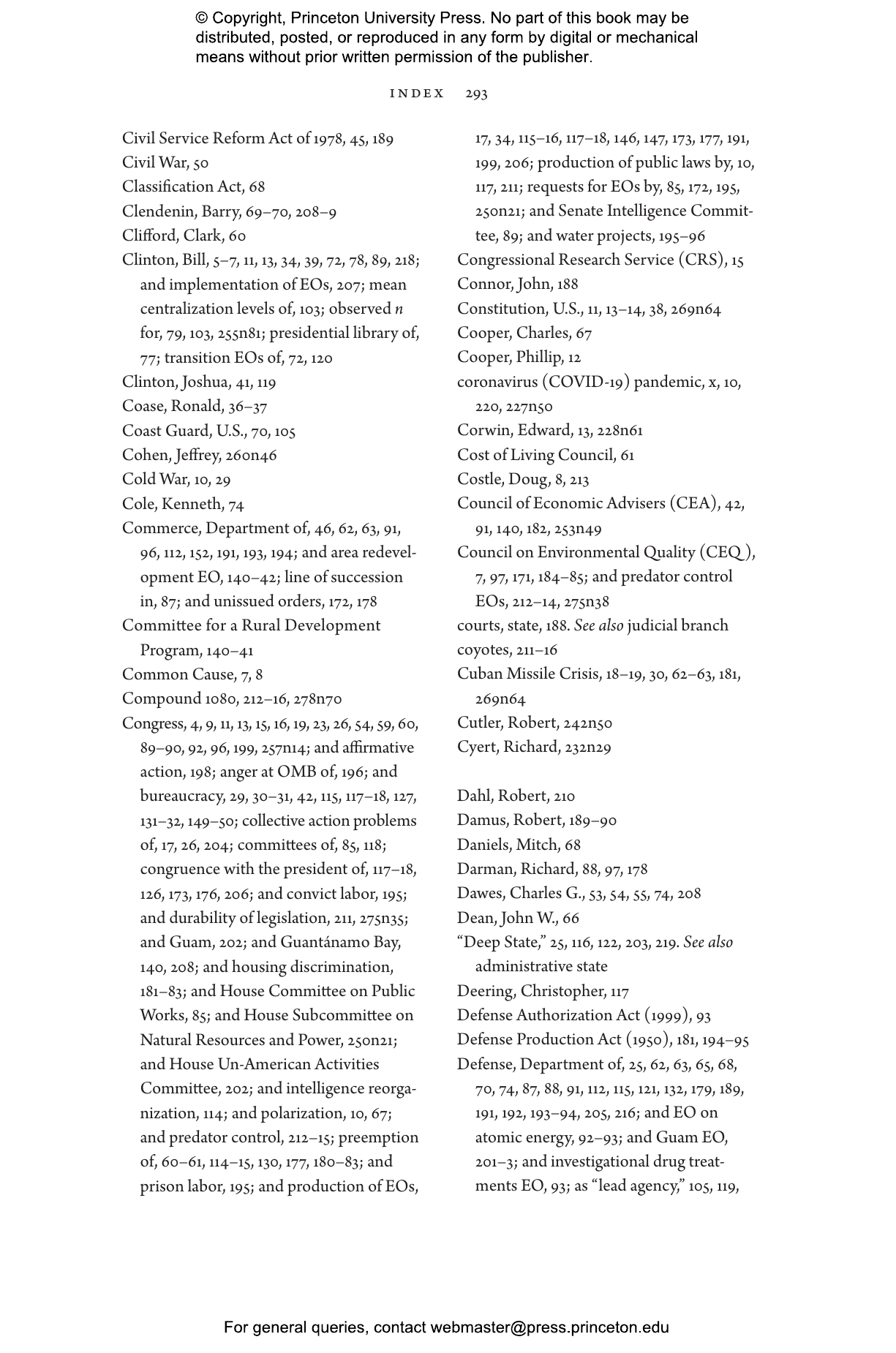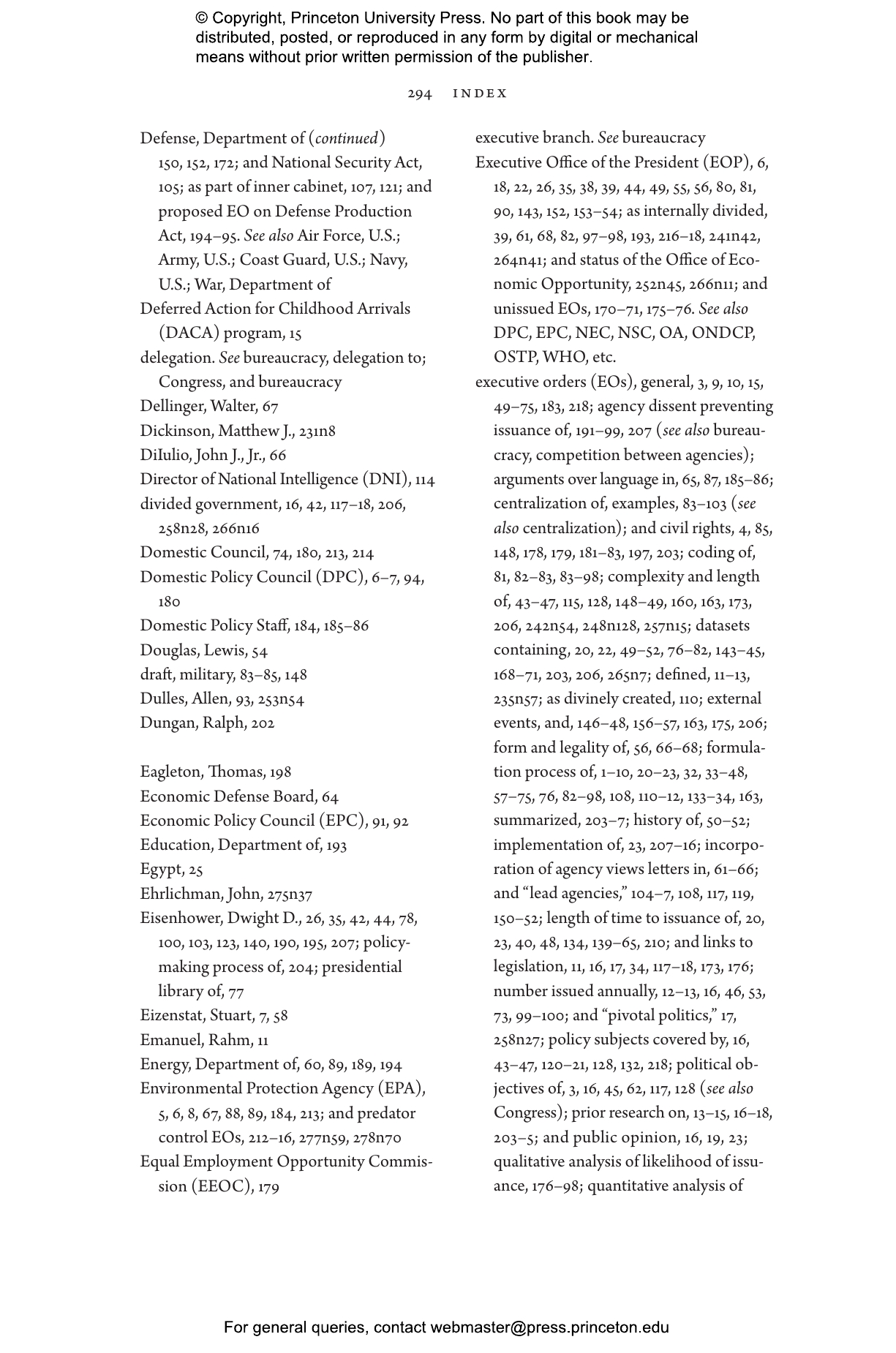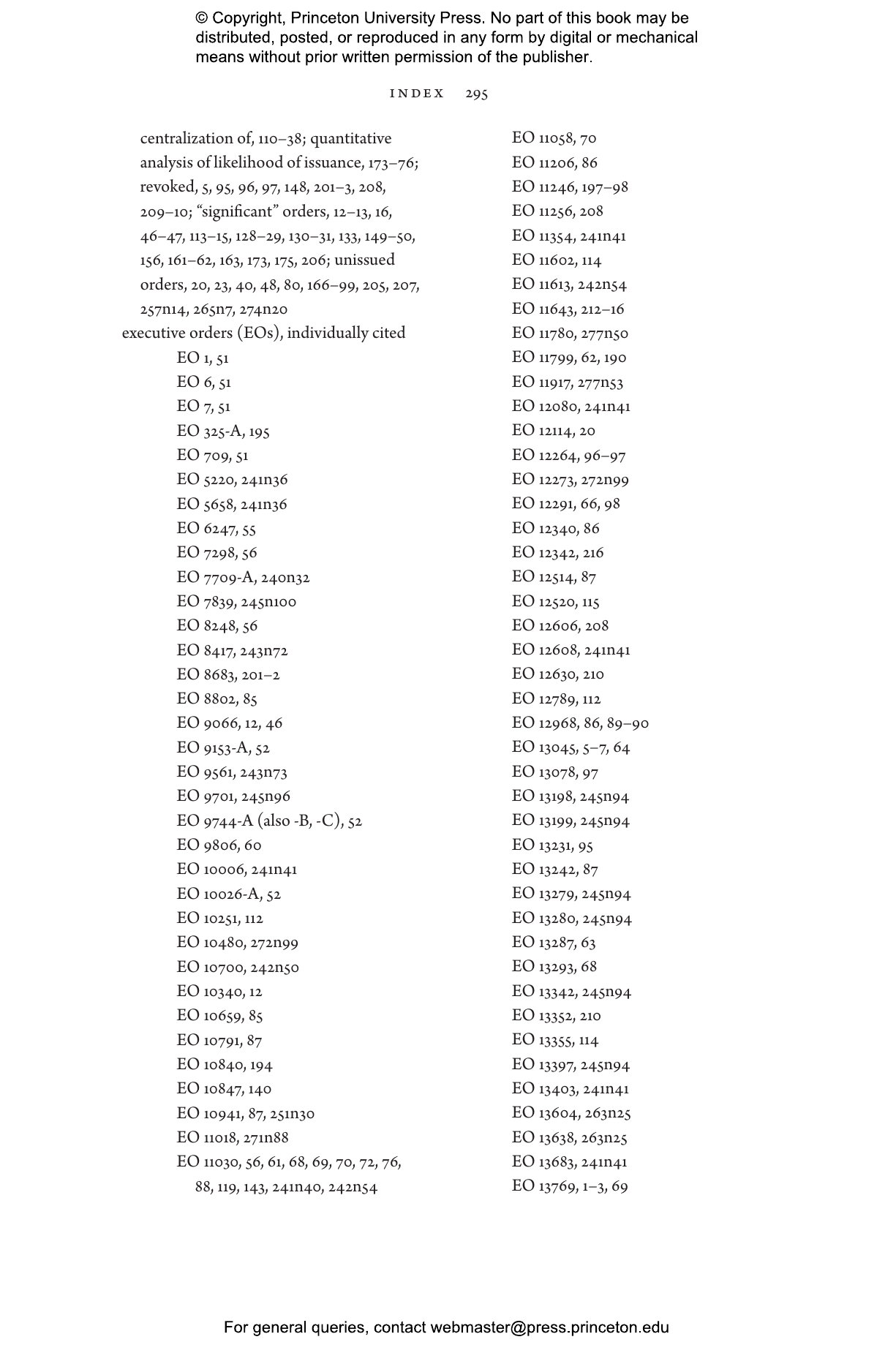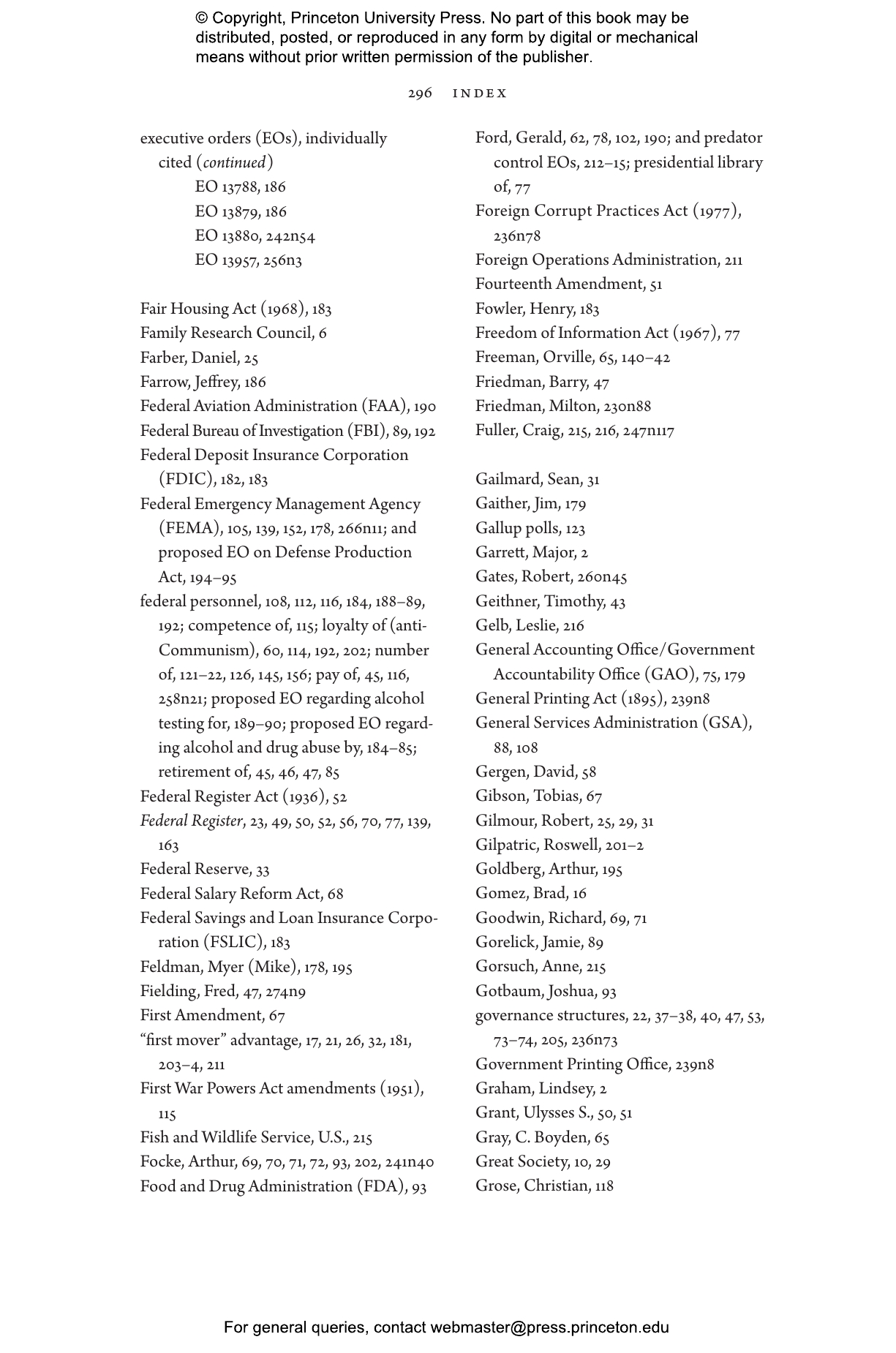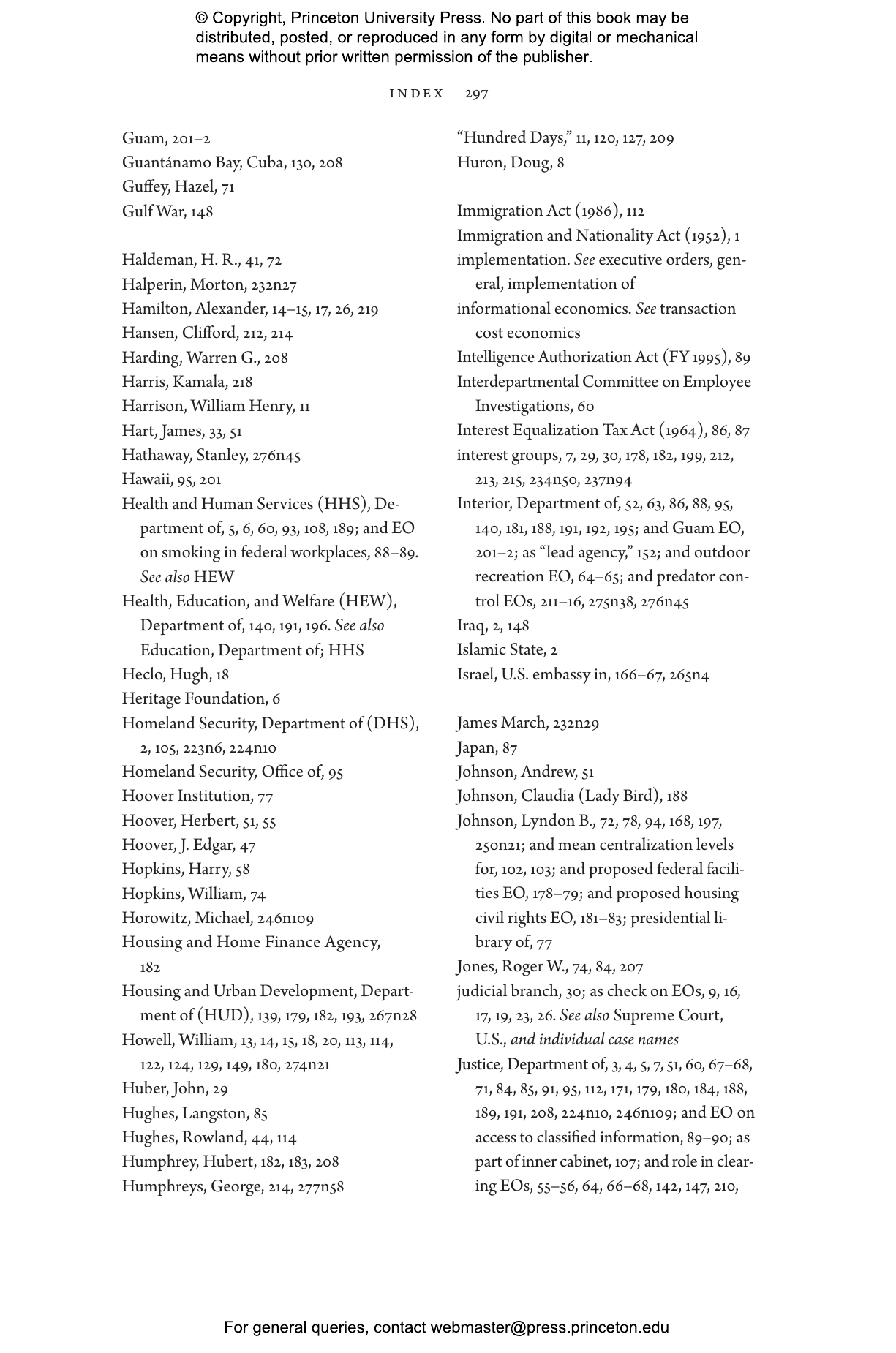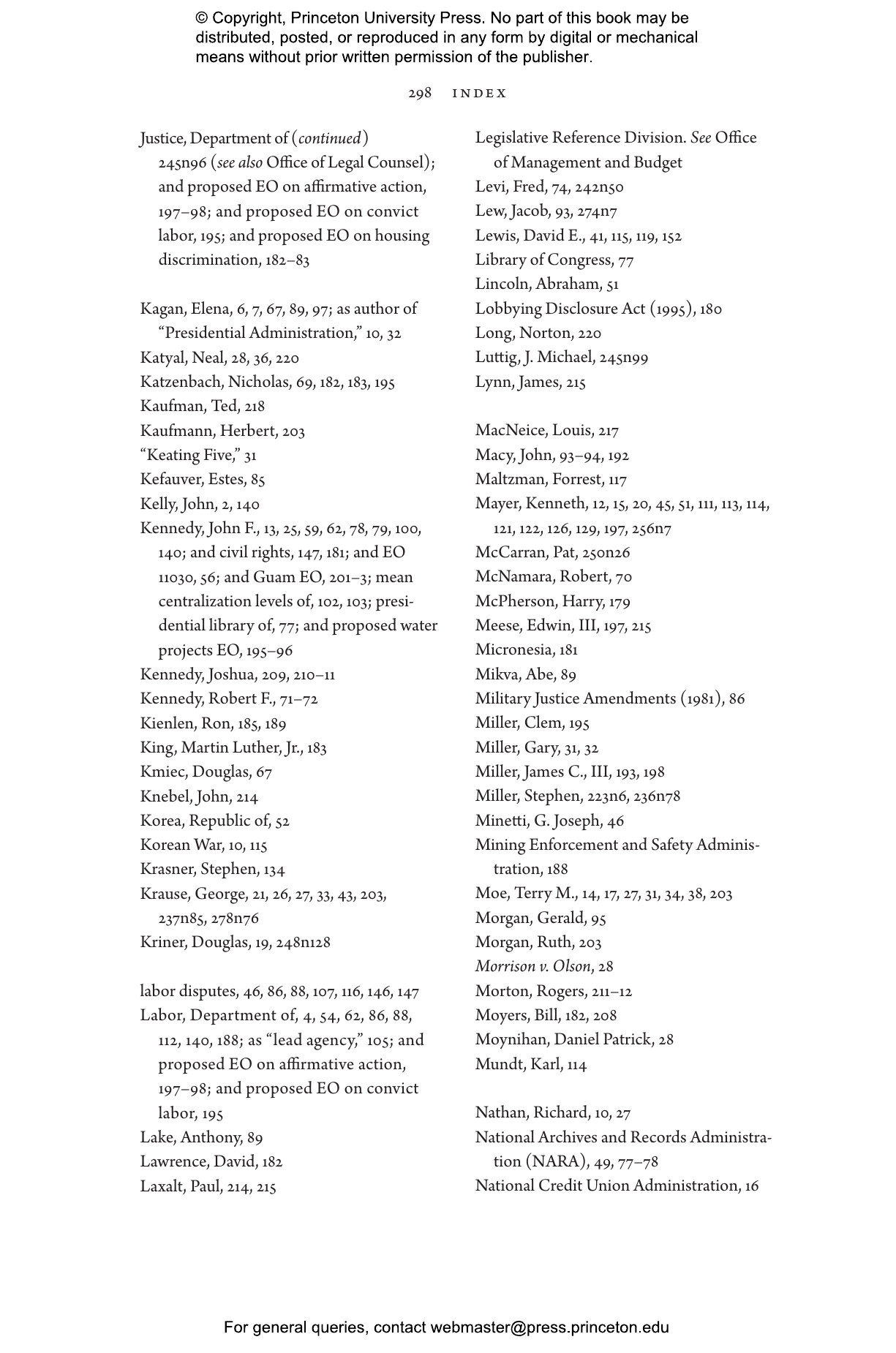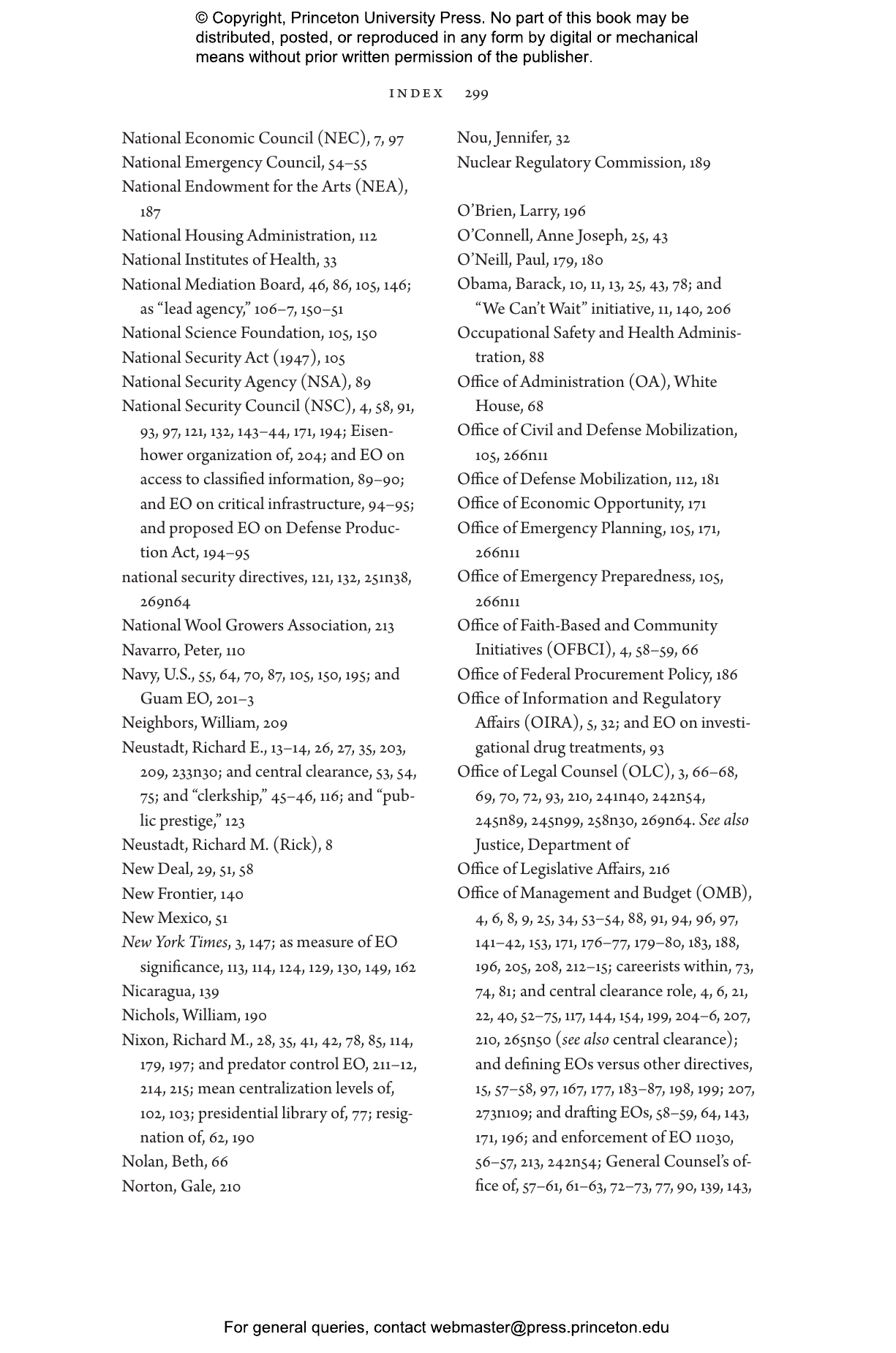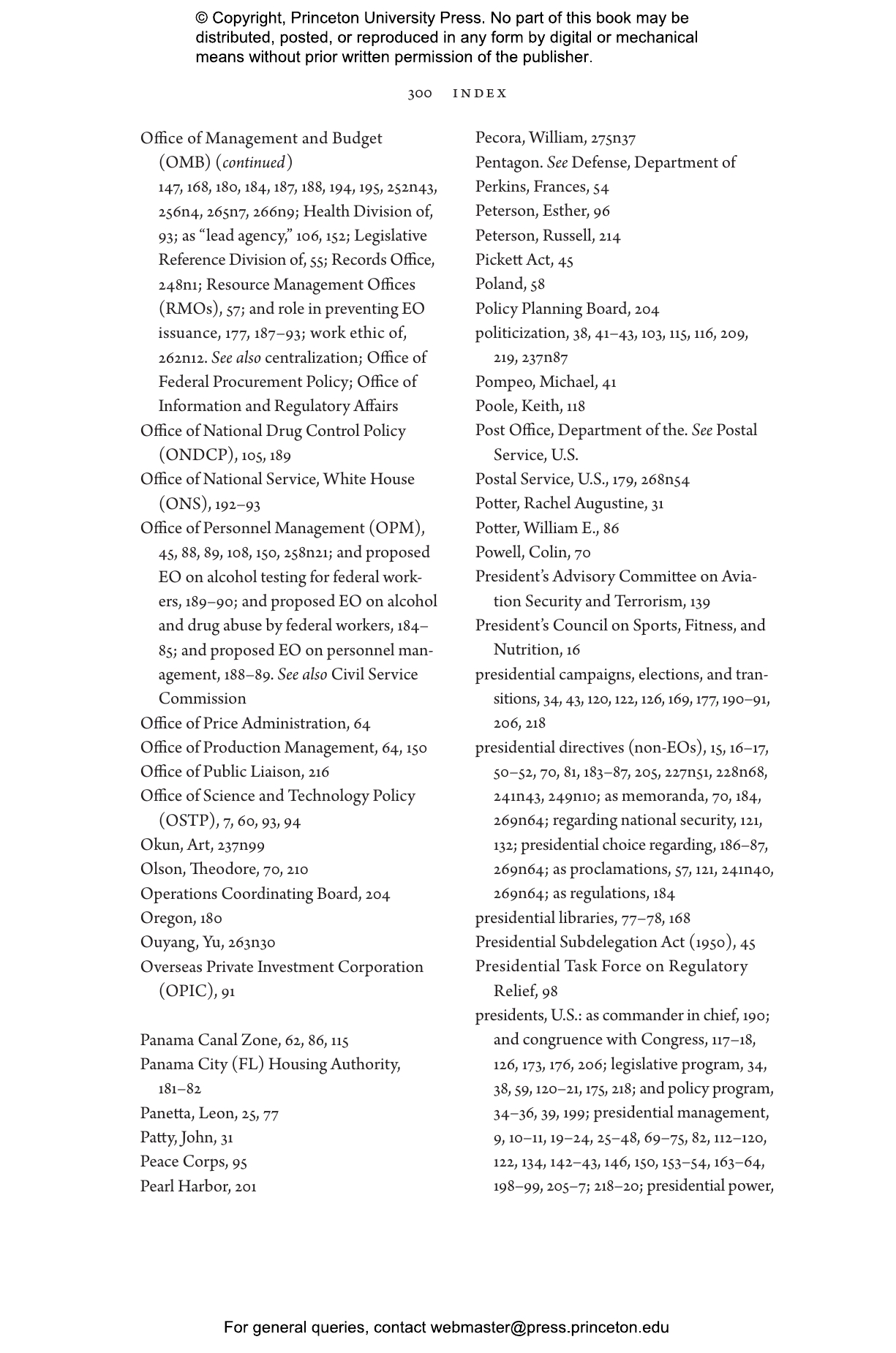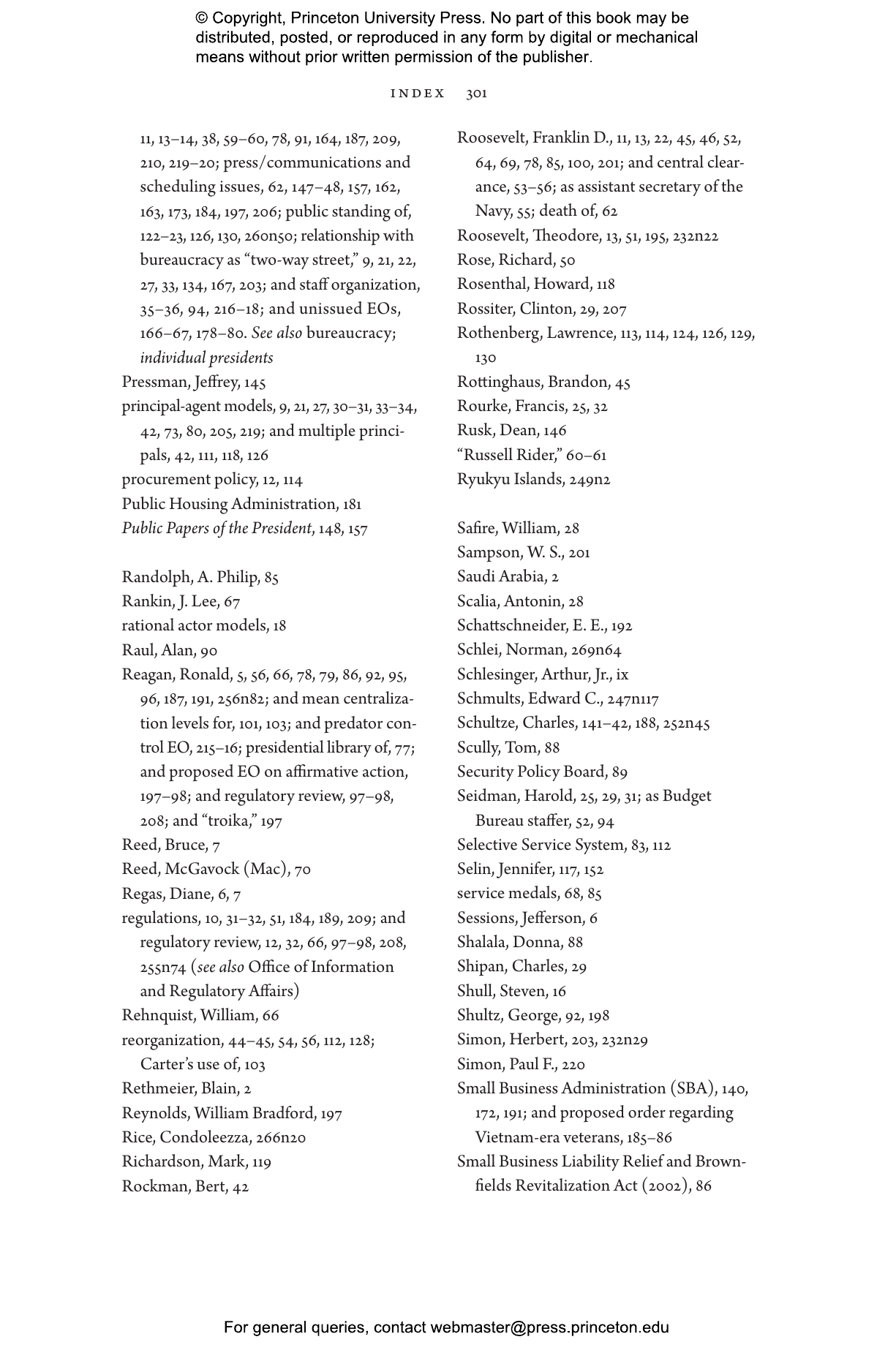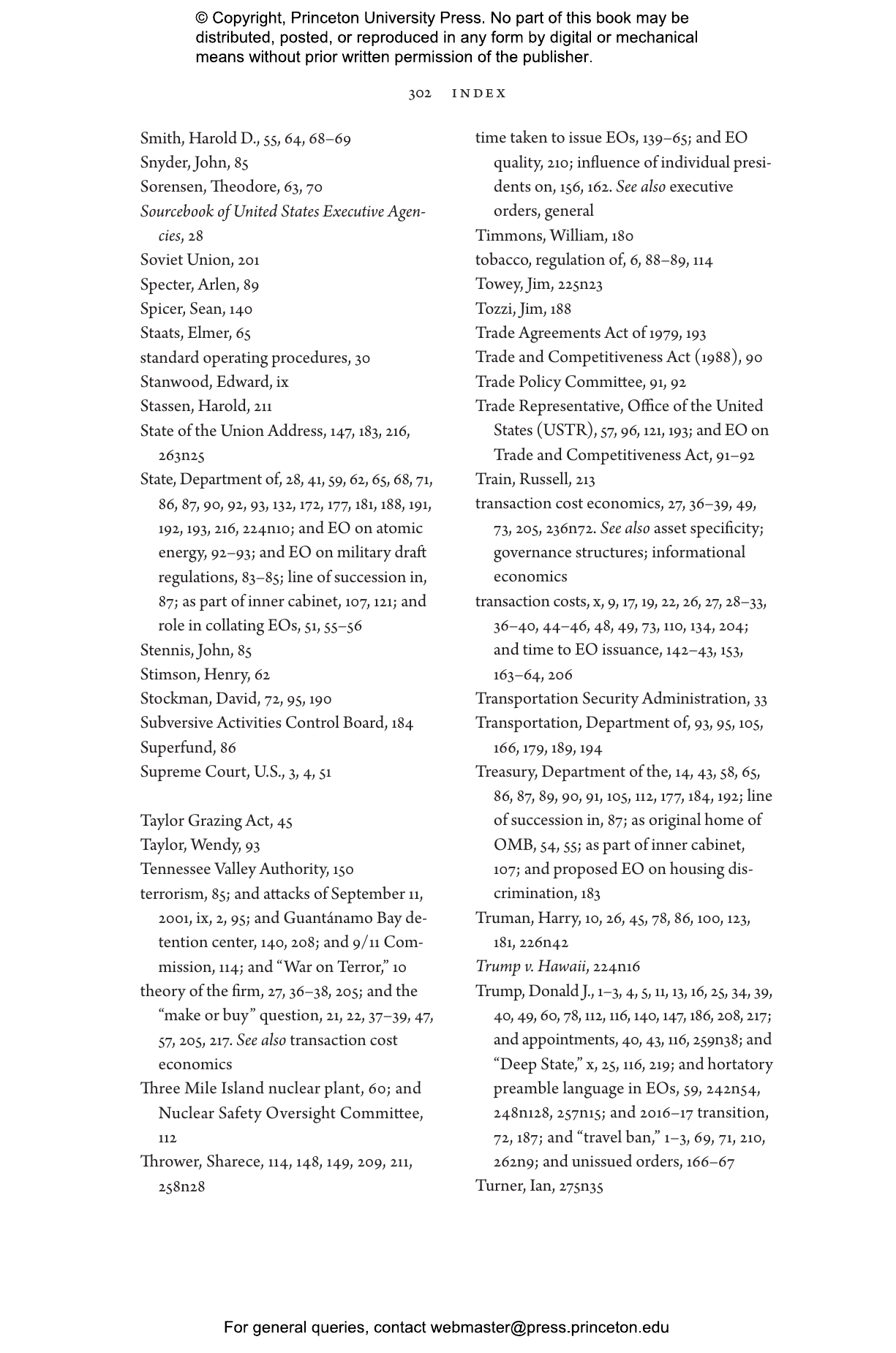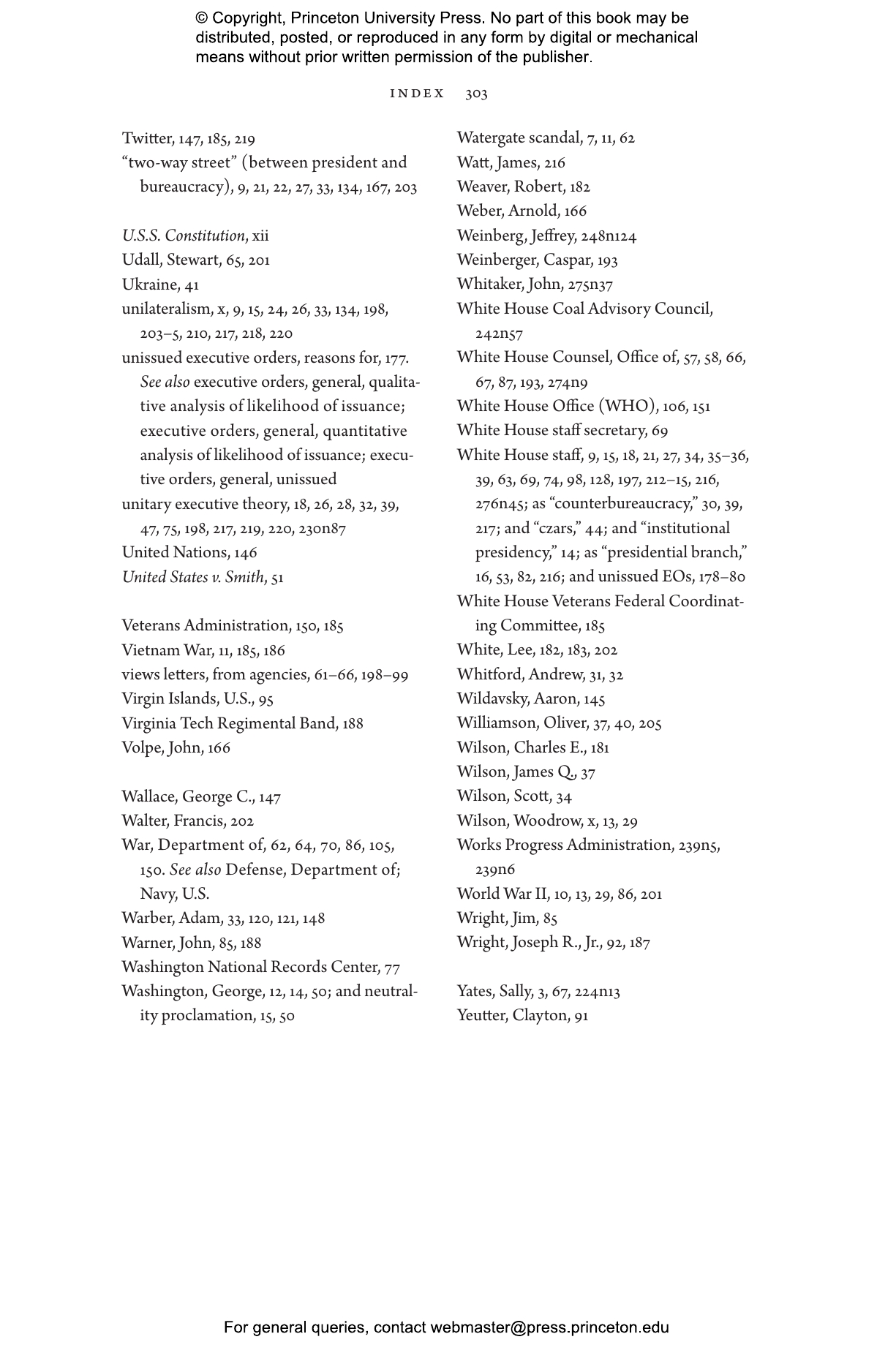By Executive Order: Bureaucratic Management and the Limits of Presidential Power
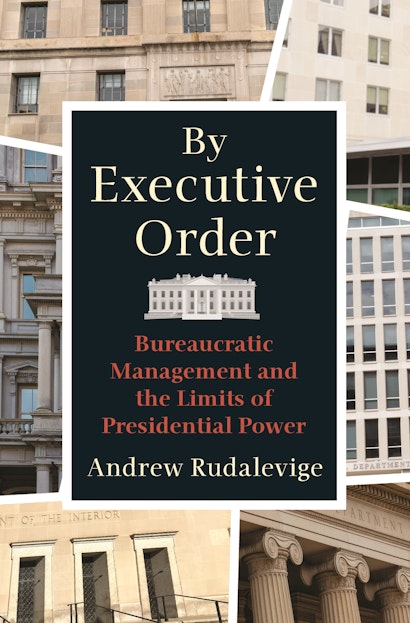

Hardcover
- Price:
- $104.00/£88.00
- ISBN:
- Published:
- Apr 6, 2021
- Pages:
- 328
- Size:
- 6.13 x 9.25 in.
- 20 b/w illus. 21 tables.
- Main_subject:
- Political Science
Paperback
ebook
The president of the United States is commonly thought to wield extraordinary personal power through the issuance of executive orders. In fact, the vast majority of such orders are proposed by federal agencies and shaped by negotiations that span the executive branch. By Executive Order provides the first comprehensive look at how presidential directives are written—and by whom.
In this eye-opening book, Andrew Rudalevige examines more than five hundred executive orders from the 1930s to today—as well as more than two hundred others negotiated but never issued—shedding vital new light on the multilateral process of drafting supposedly unilateral directives. He draws on a wealth of archival evidence from the Office of Management and Budget and presidential libraries as well as original interviews to show how the crafting of orders requires widespread consultation and compromise with a formidable bureaucracy. Rudalevige explains the key role of management in the presidential skill set, detailing how bureaucratic resistance can stall and even prevent actions the chief executive desires, and how presidents must bargain with the bureaucracy even when they seek to act unilaterally.
Challenging popular conceptions about the scope of presidential power, By Executive Order reveals how the executive branch holds the power to both enact and constrain the president’s will.
Awards and Recognition
- Winner of the Richard E. Neustadt Award, Presidents and Executive Politics Section of the American Political Science Association
- Winner of the Louis Brownlow Book Award, National Academy of Public Administration
